Romanesque and Gothic Art
1/50
There's no tags or description
Looks like no tags are added yet.
Name | Mastery | Learn | Test | Matching | Spaced | Call with Kai |
|---|
No study sessions yet.
51 Terms
kings gallery
The band of statues running the full width of the facade of a Gothic cathedral directly above the rose window. These were the kings of Judah and Israel.
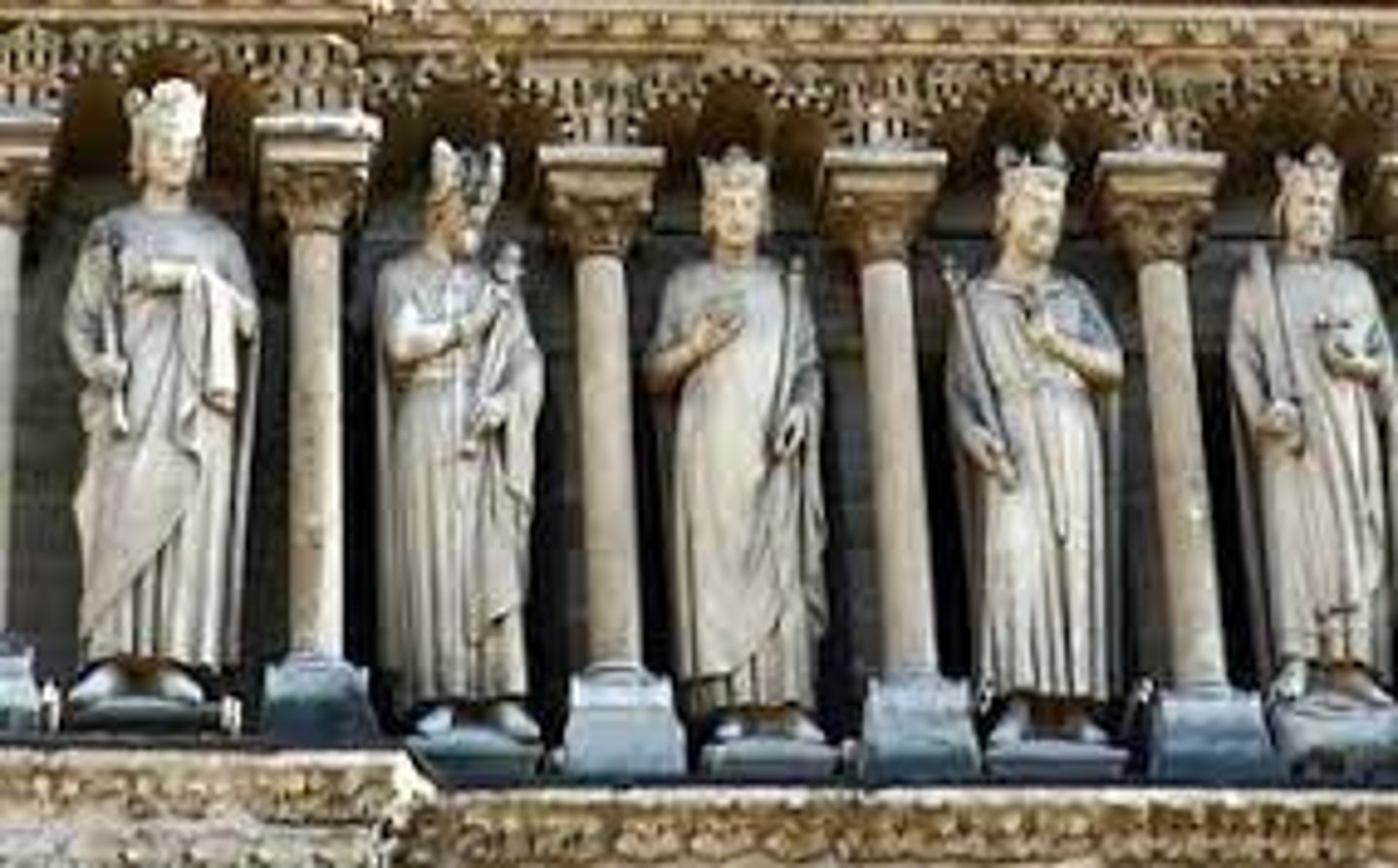
ambulatory
a place for walking, especially an aisle around the apse or a cloister in a church or monastery.
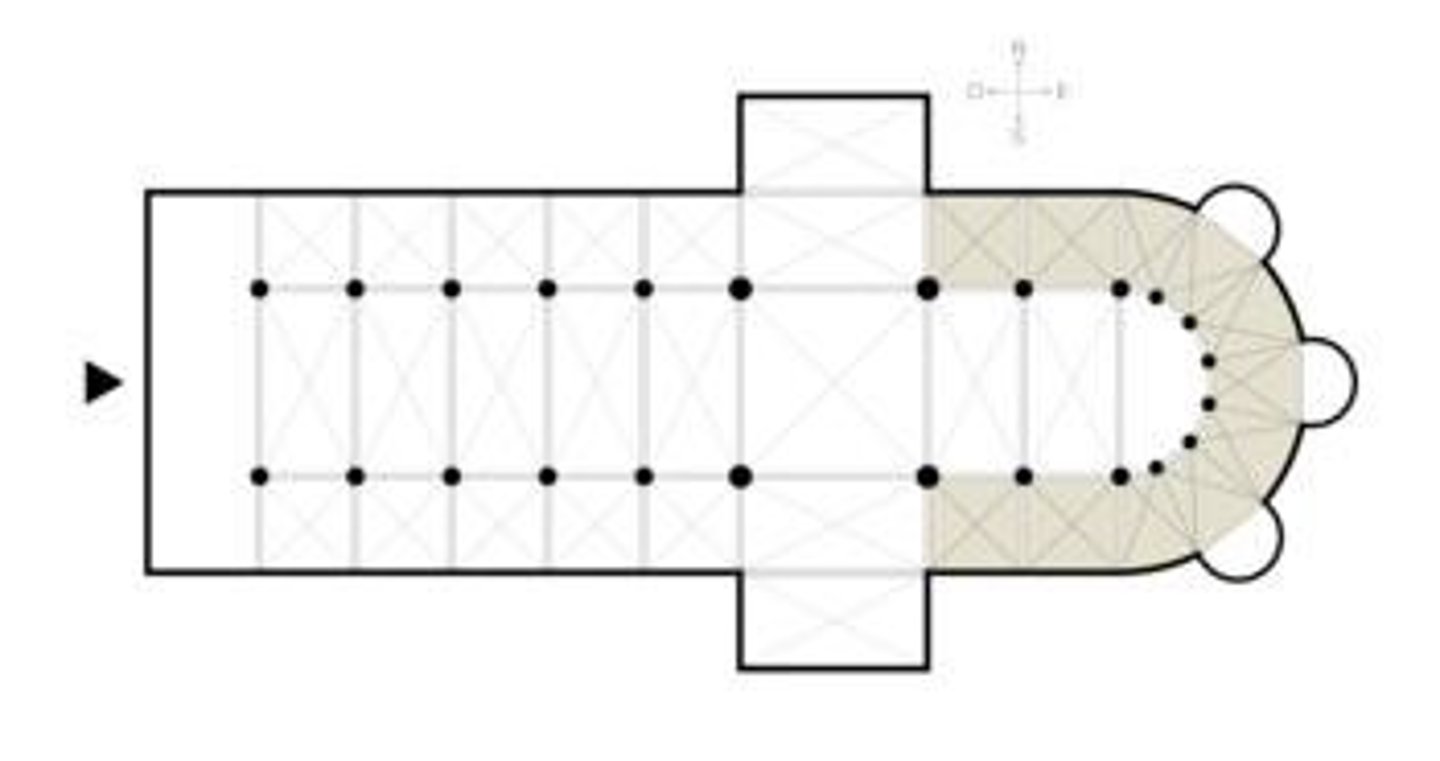
Archivolts (Romanesque)
a band of molding, resembling an architrave, around the lower curve of an arch.
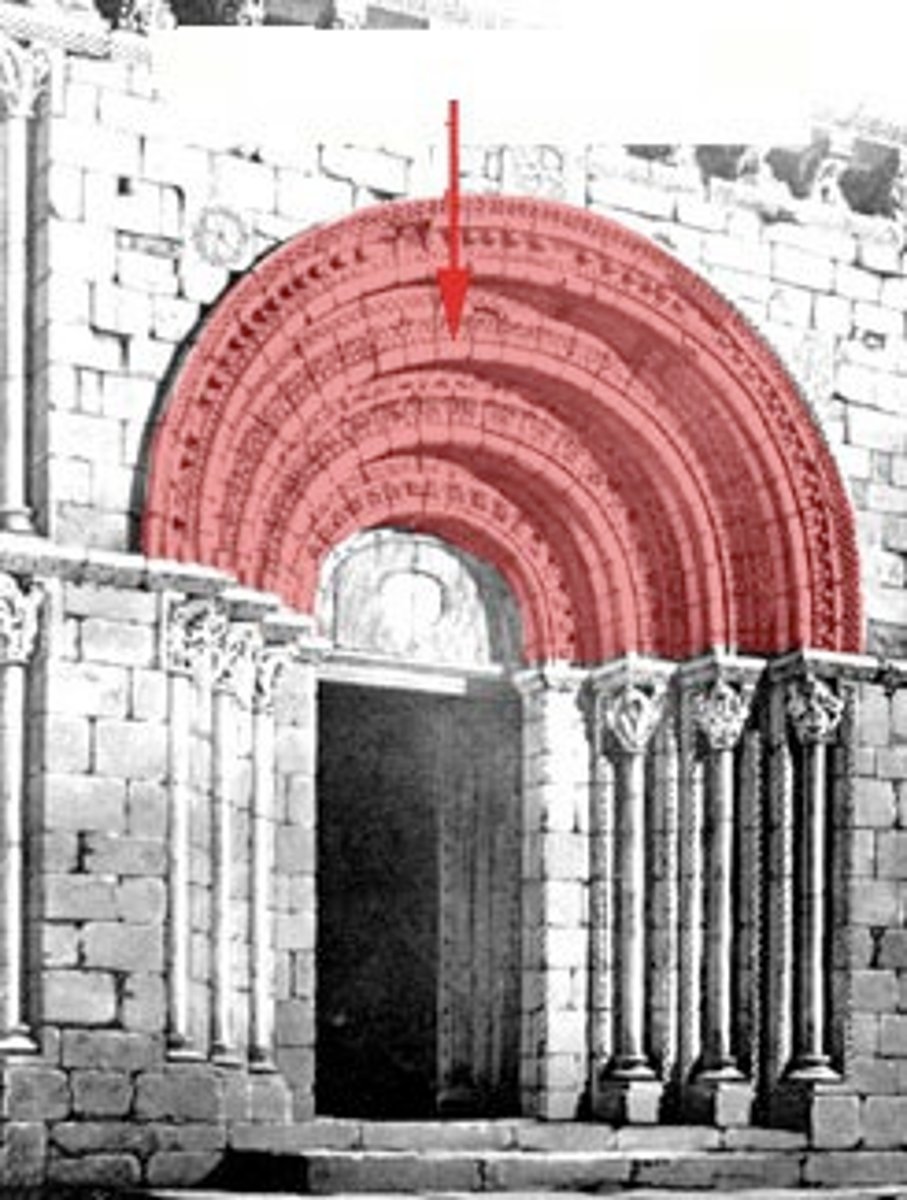
bar tracery
Tracery which is composed of thin stone elements rather than thick ones as in plate tracery The glass rather than the stone dominates when bar tracery is used. It gives a more delicate, web-like effect
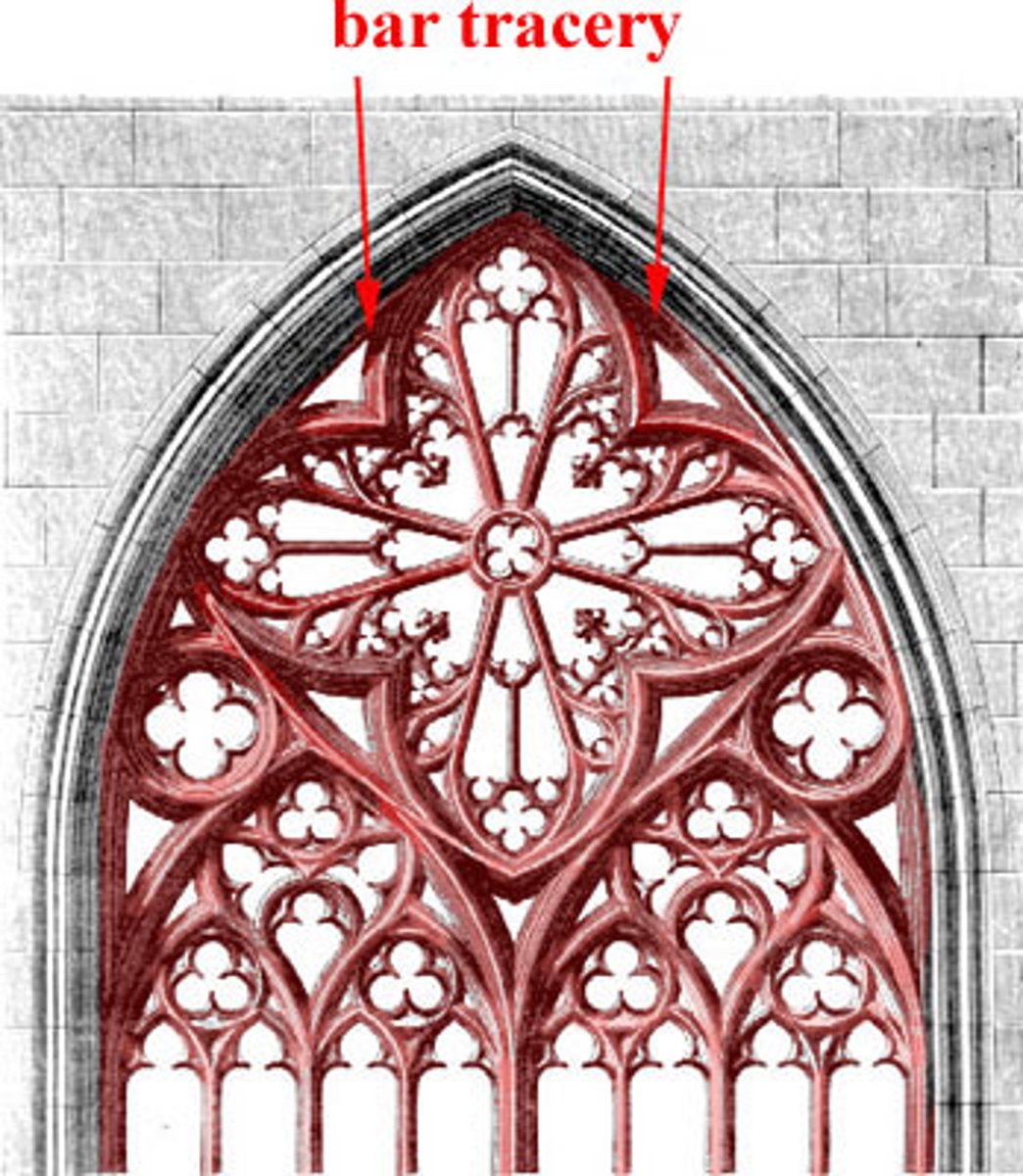
plate tracery
A type of tracery; uses thick areas of stone to separate glazed areas; the stone dominates the window rather than the glass
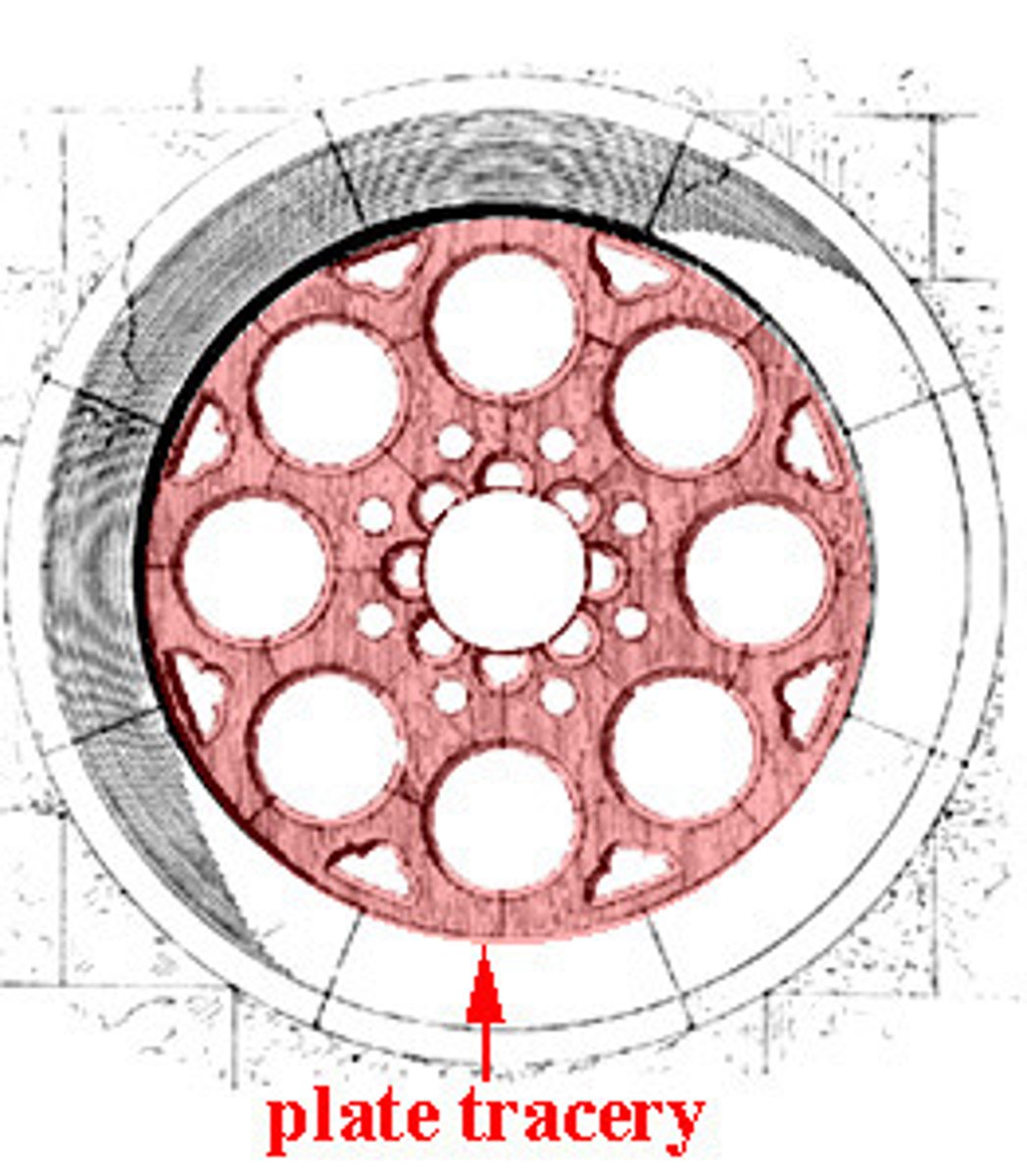
Barrell Vault
a continuous arched shape that may approximate a semi-cylinder in form. It is typically formed by a series of arches or vaults placed side by side or by a continuous shell.
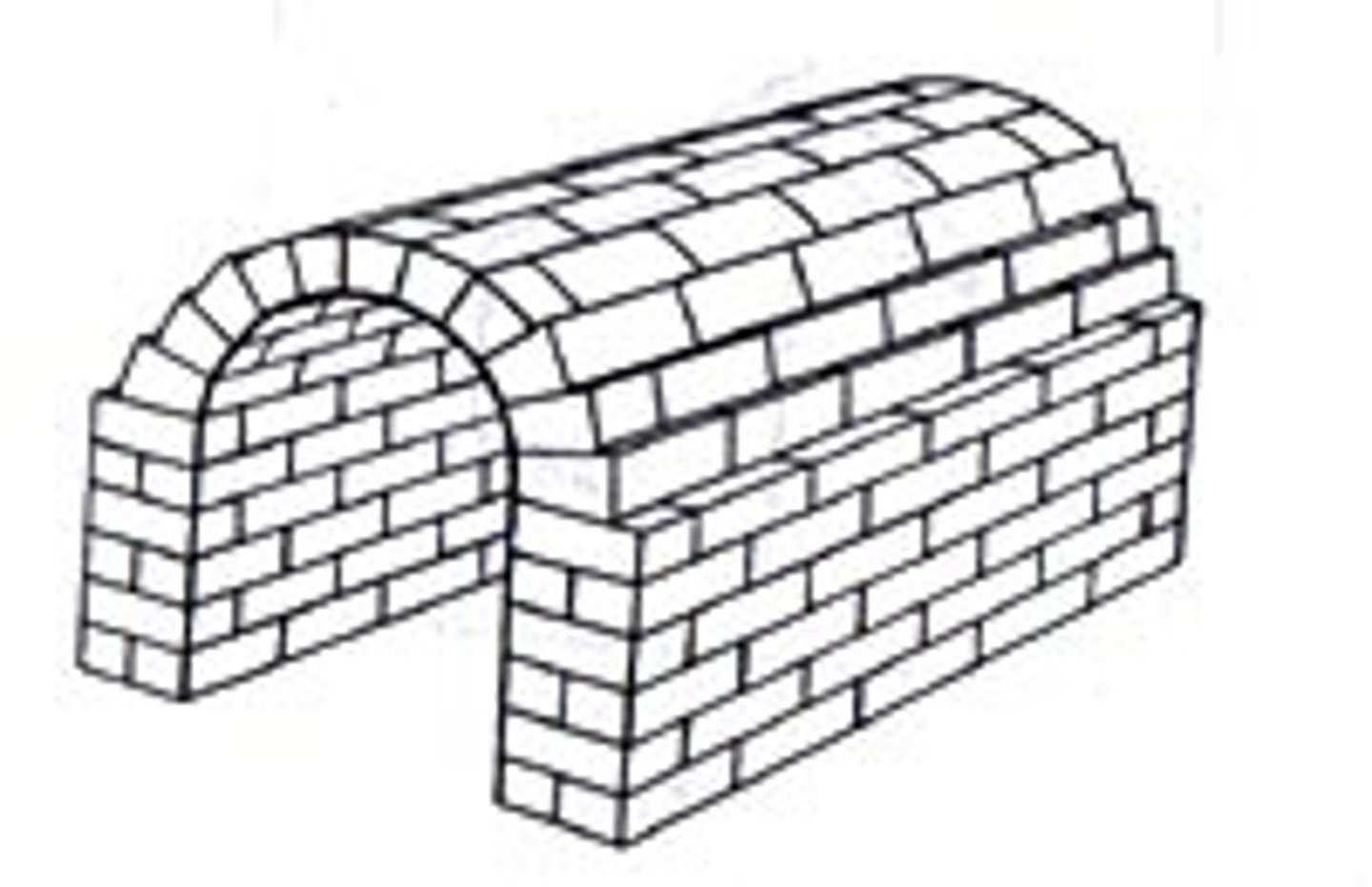
campanile
A bell tower of a church, usually, but not always, freestanding.
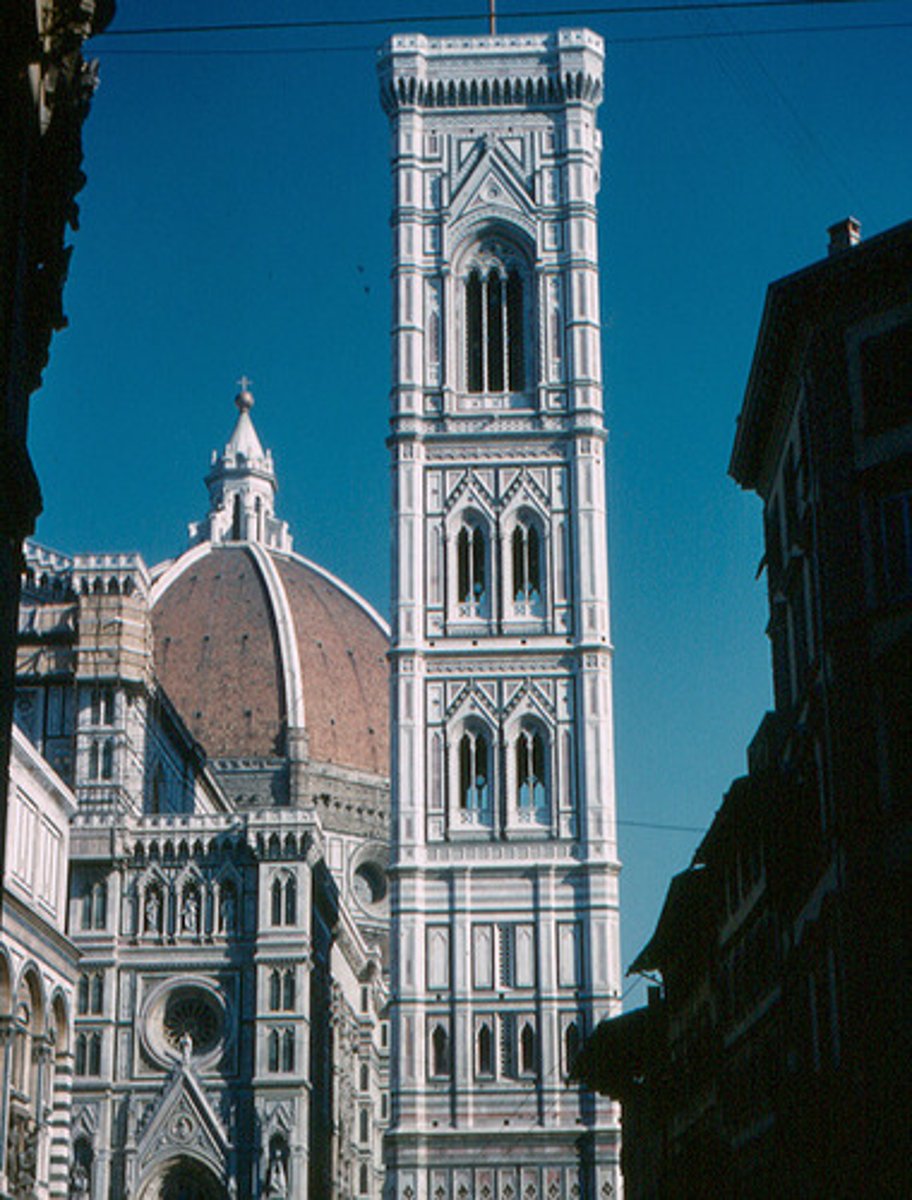
cathedral
The major church of a diocese, where the bishop has his seat
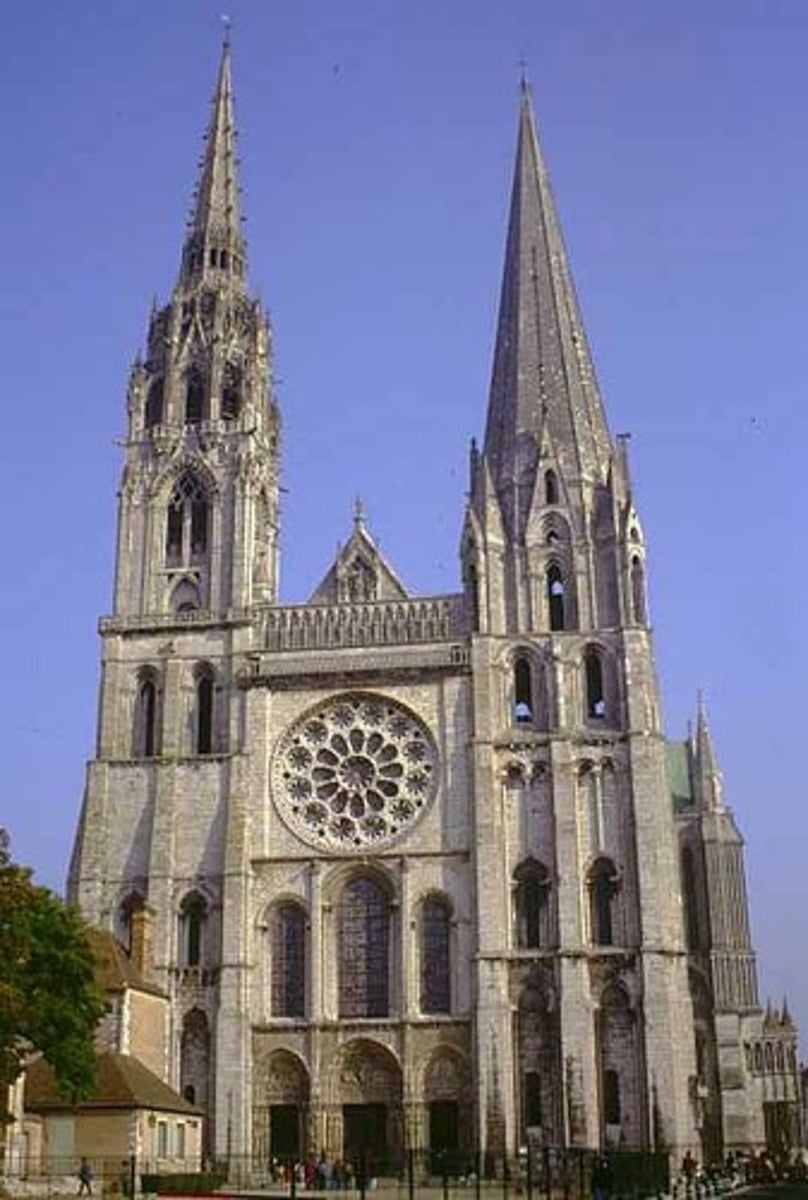
cruciform plan
a cross-shaped floor-plan; not typically seen until the Gothic era
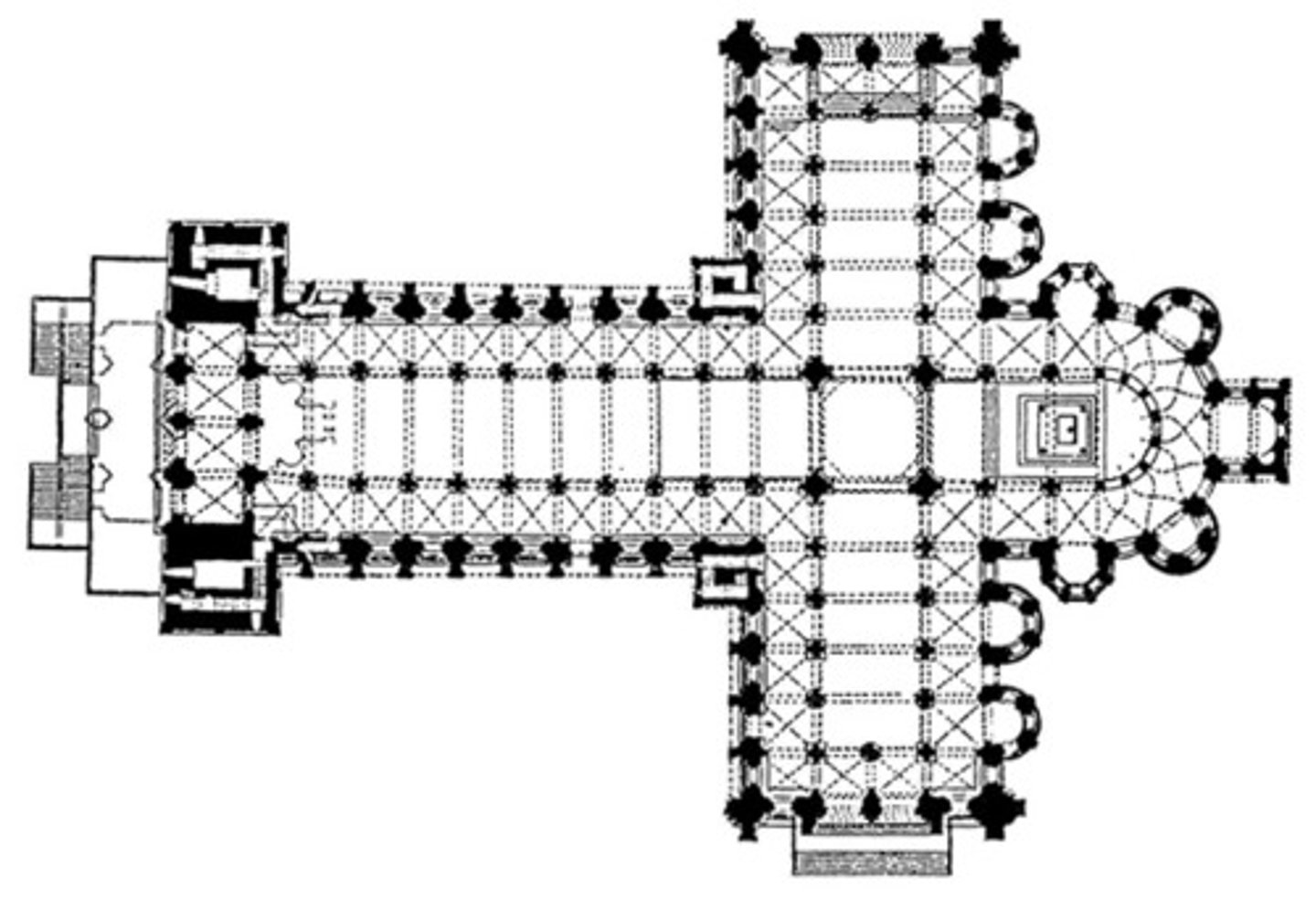
embroidery
decorative needlework
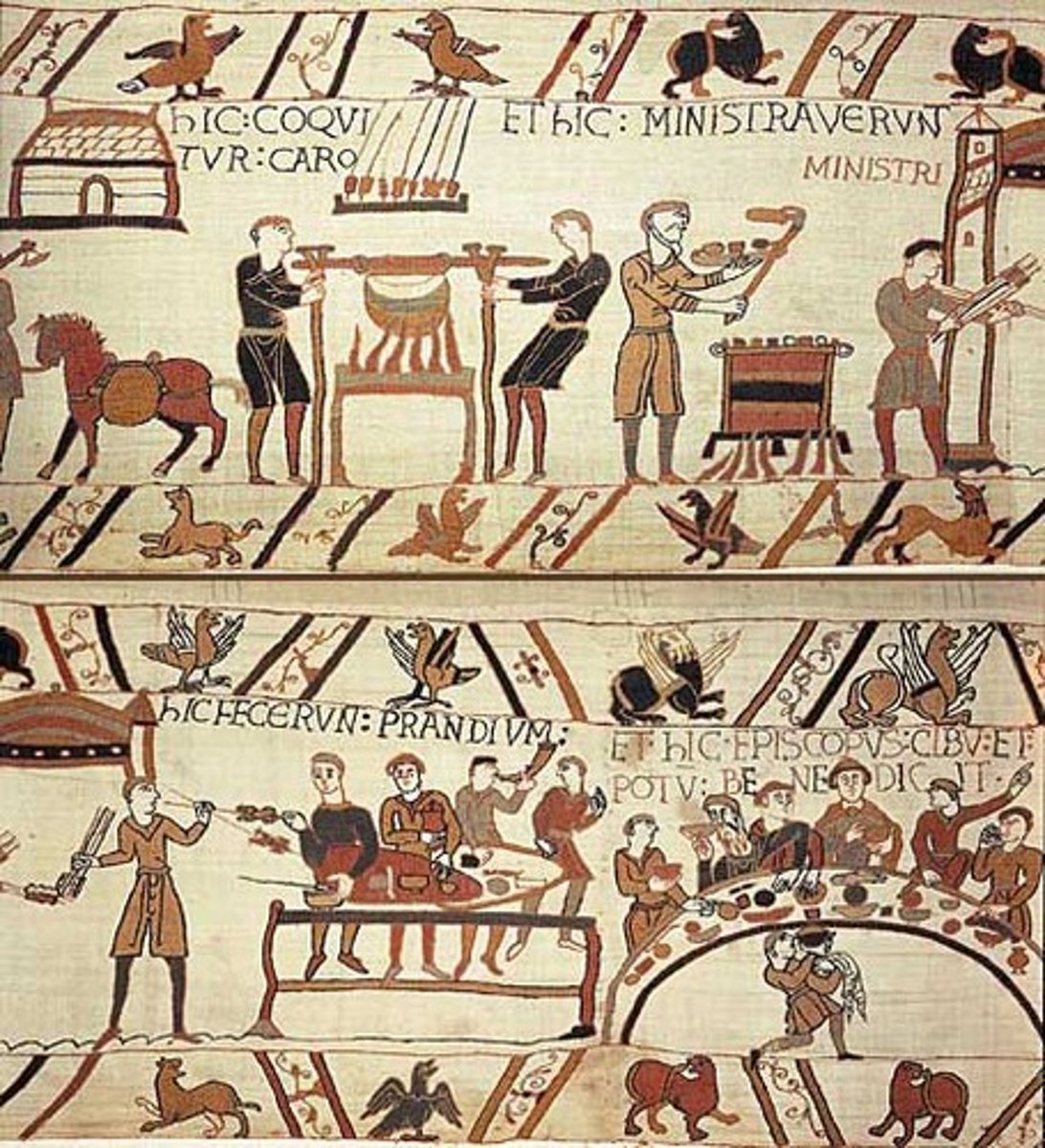
facade
(n.) the front or face of a building; a surface appearance (as opposed to what may lie behind)
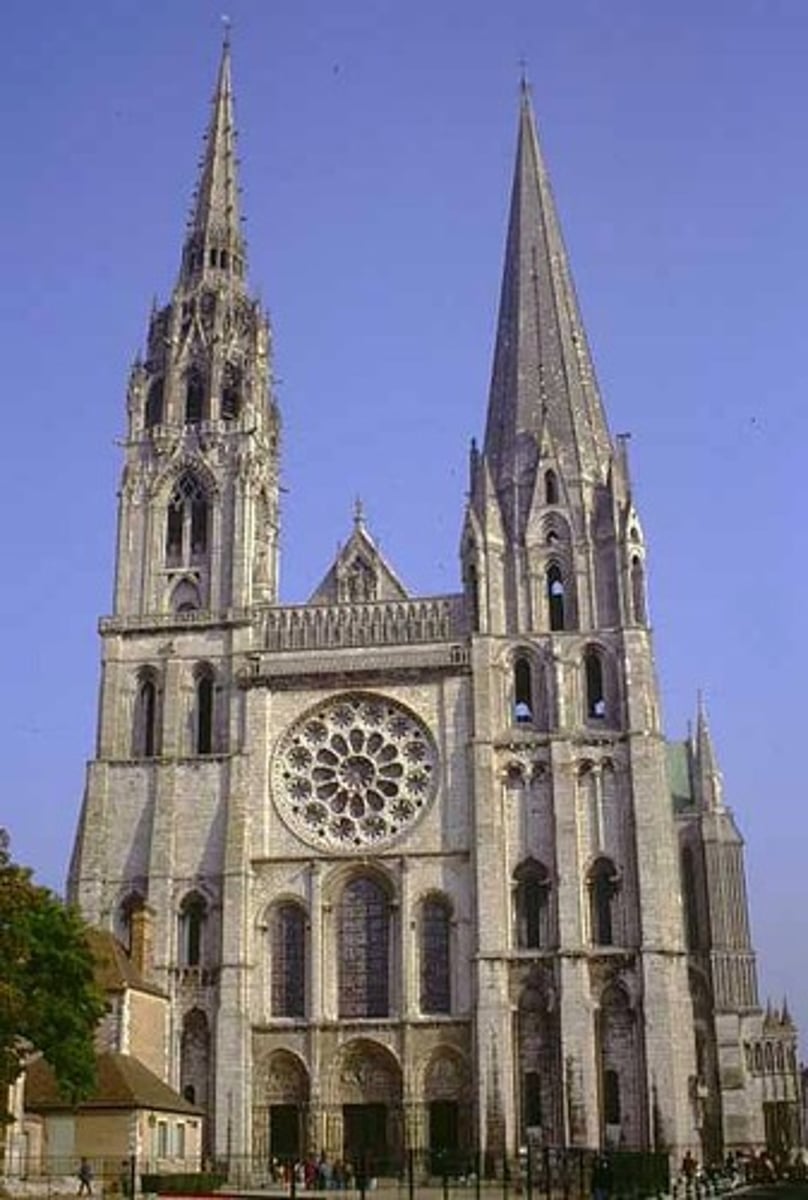
groin vault
a vault formed when two barrel vaults meet at right angles
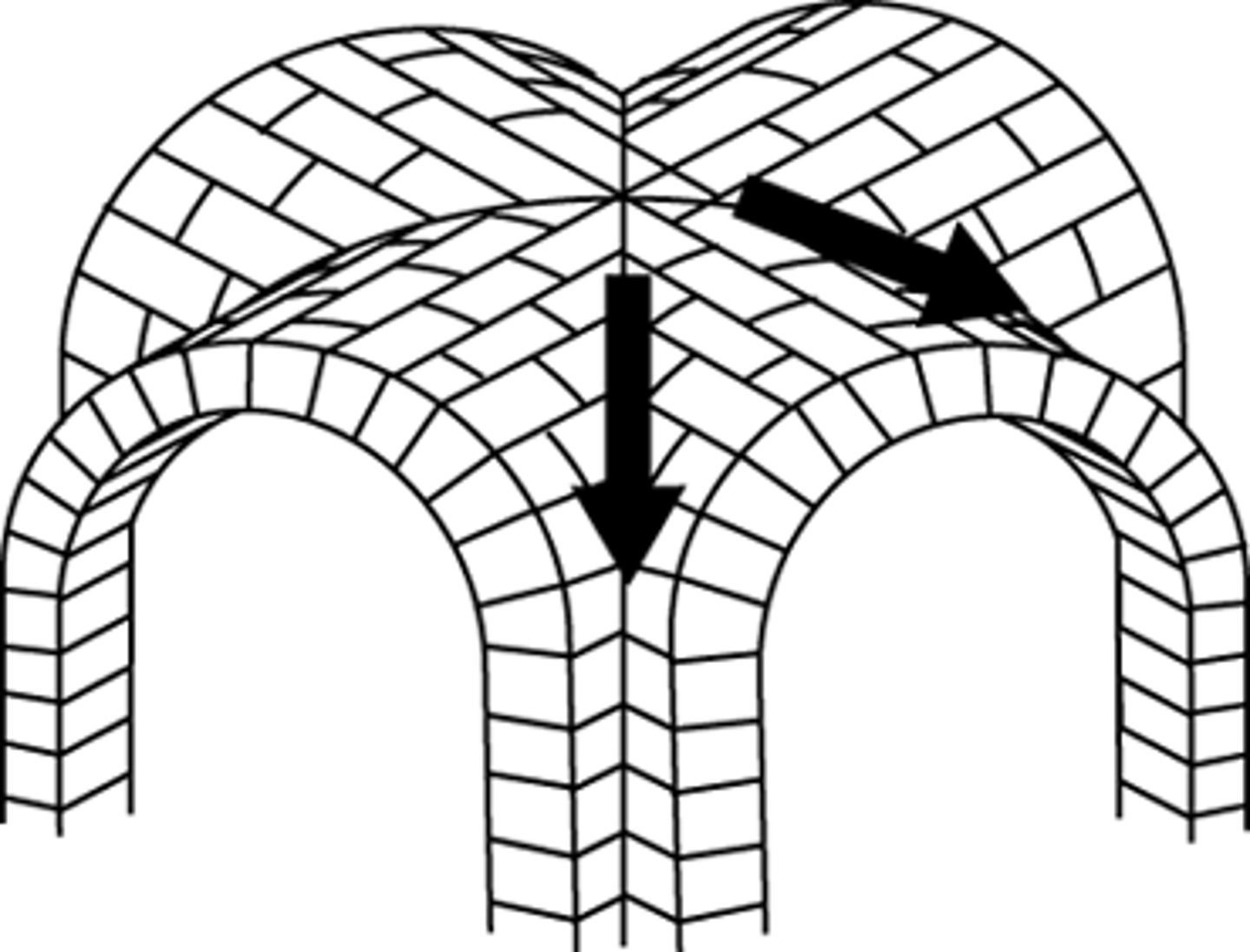
Jambs
In architecture, the side posts of a doorway.
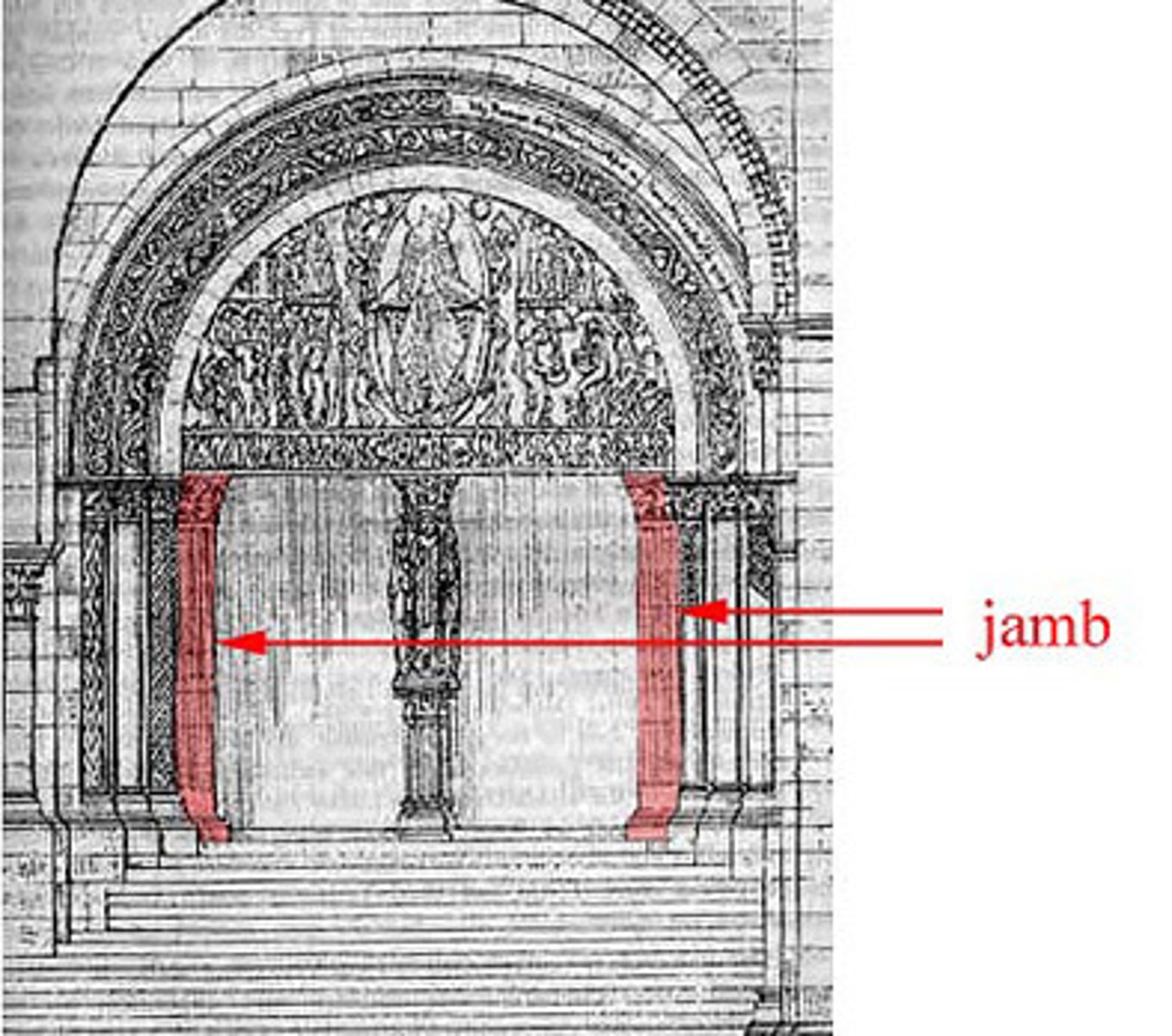
Last Judgement
Jesus Christ's judgement of the living and the dead on the last day when he comes to fully establish God's Kingdom
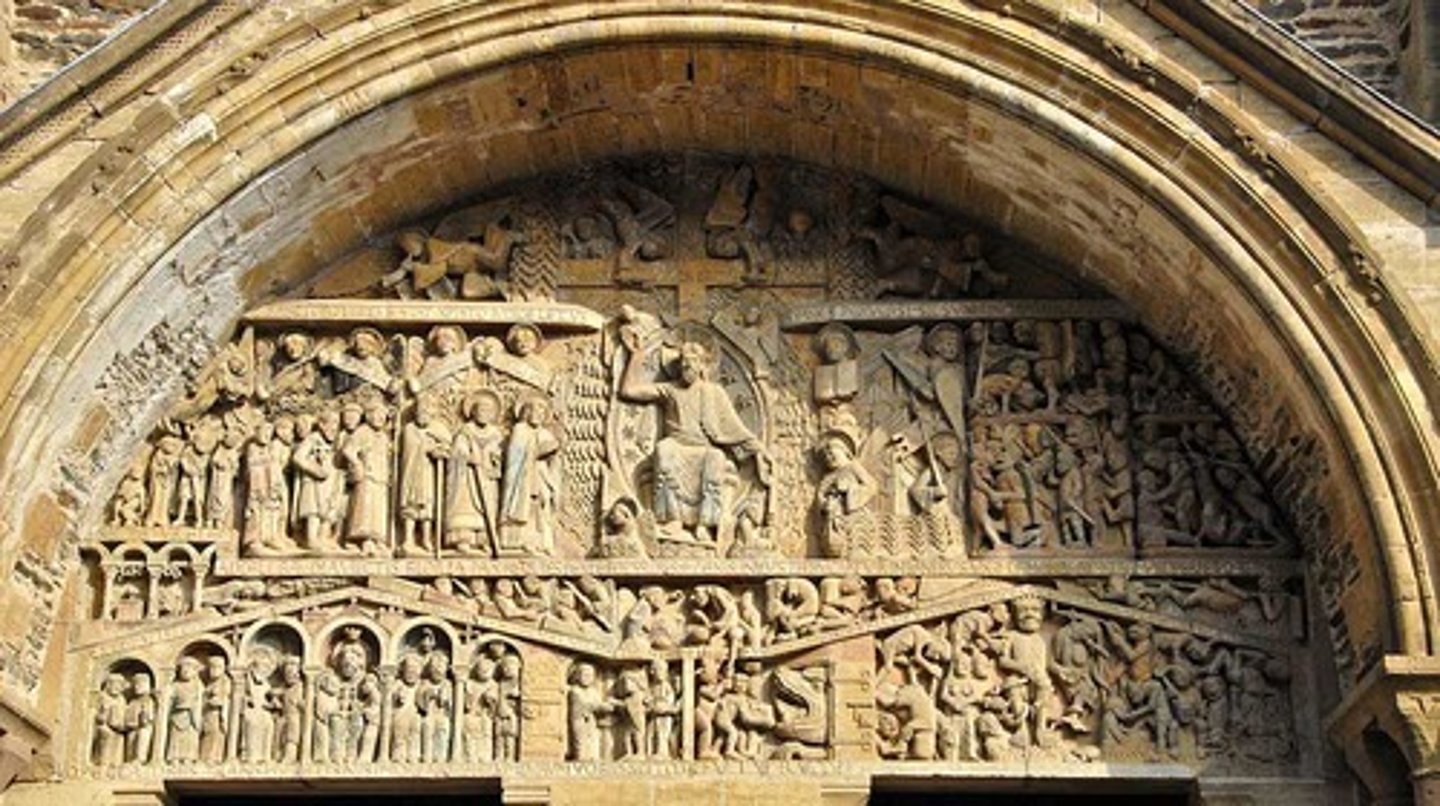
lux nova (new light)
Latin, "new light." Abbot Suger's term for the light that enters a Gothic church through stained-glass windows.
Martyr
A person who is killed because of their religious or other beliefs
Pilgrimage
A journey to a place considered sacred for religious purposes.
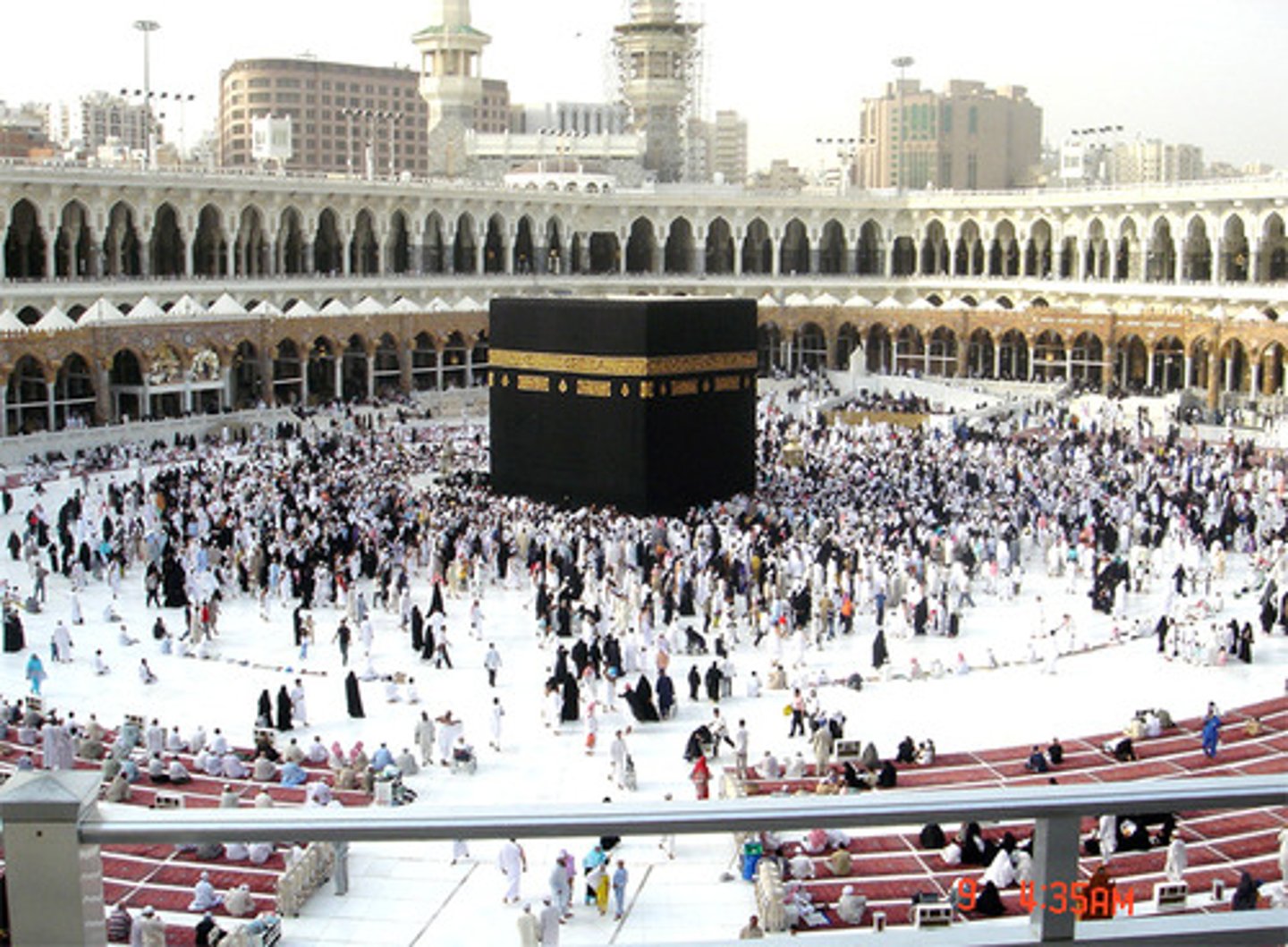
pilgrimage church
a church that attracts visitors wishing to venerate relics as well as attend religious services
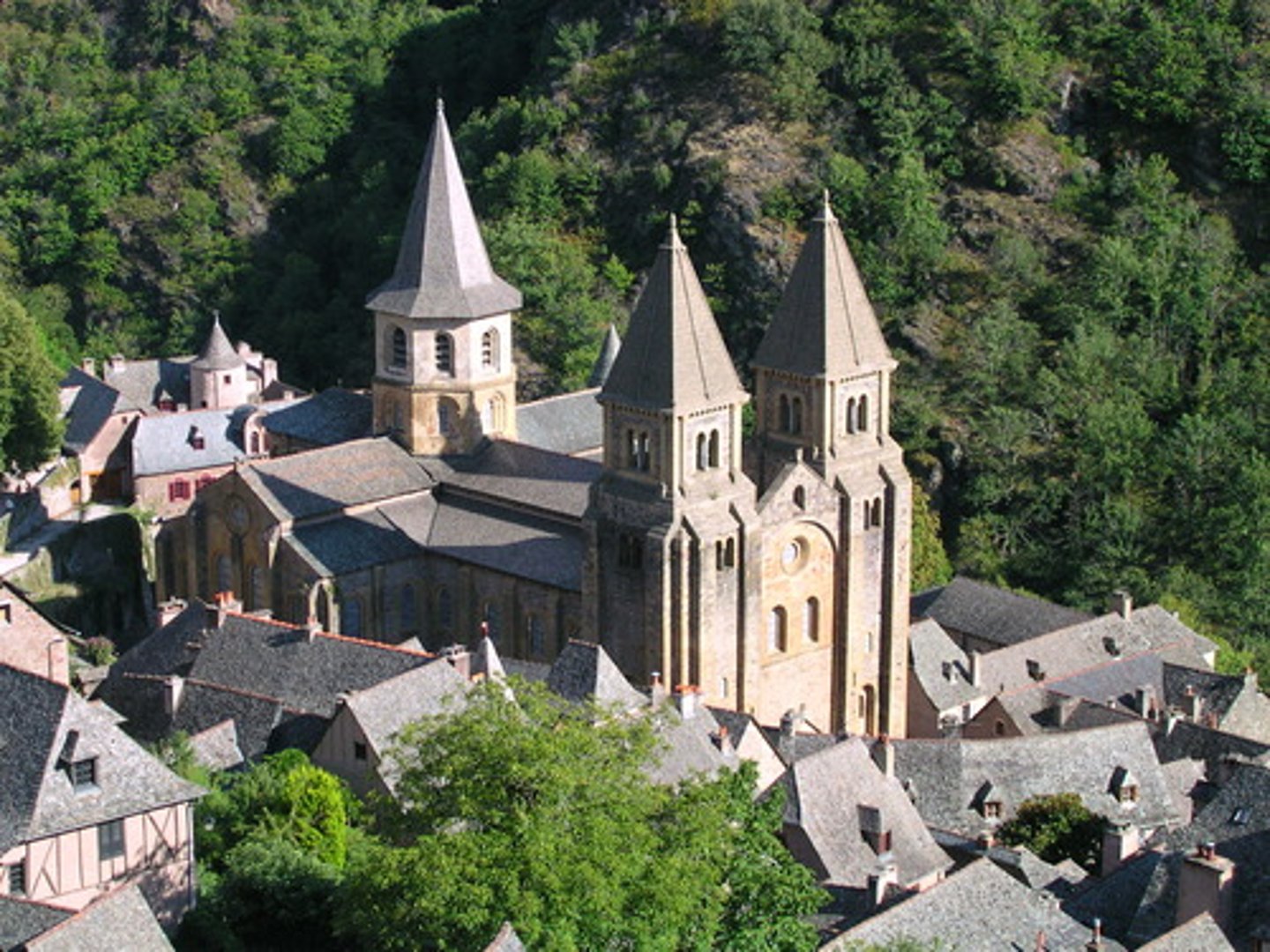
Radiating Chapels (Romanesque)
In medieval churches, chapels for the display of relics that opened directly onto the ambulatory and the transept.
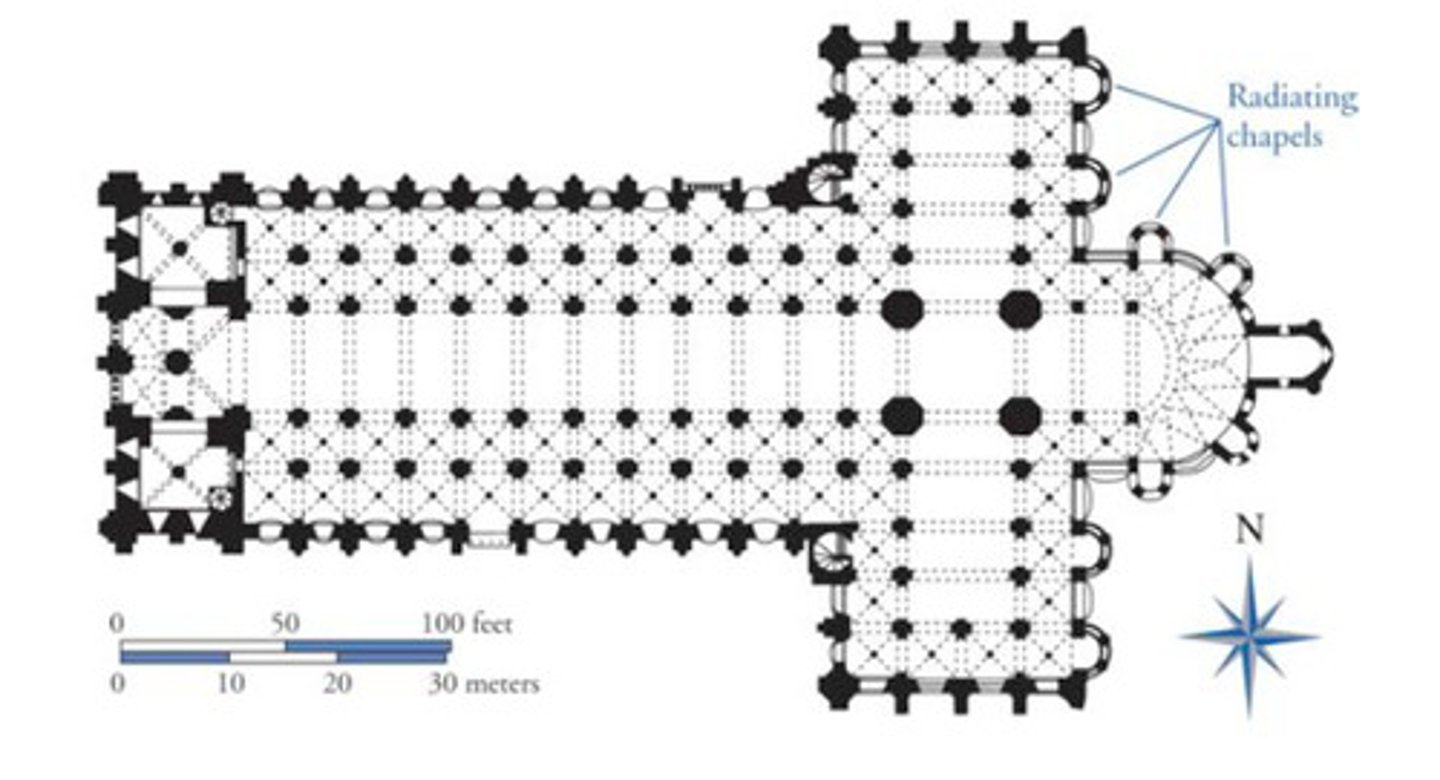
Relics
Bones or other objects connected to a religious person; considered worthy of worship by the faithful.
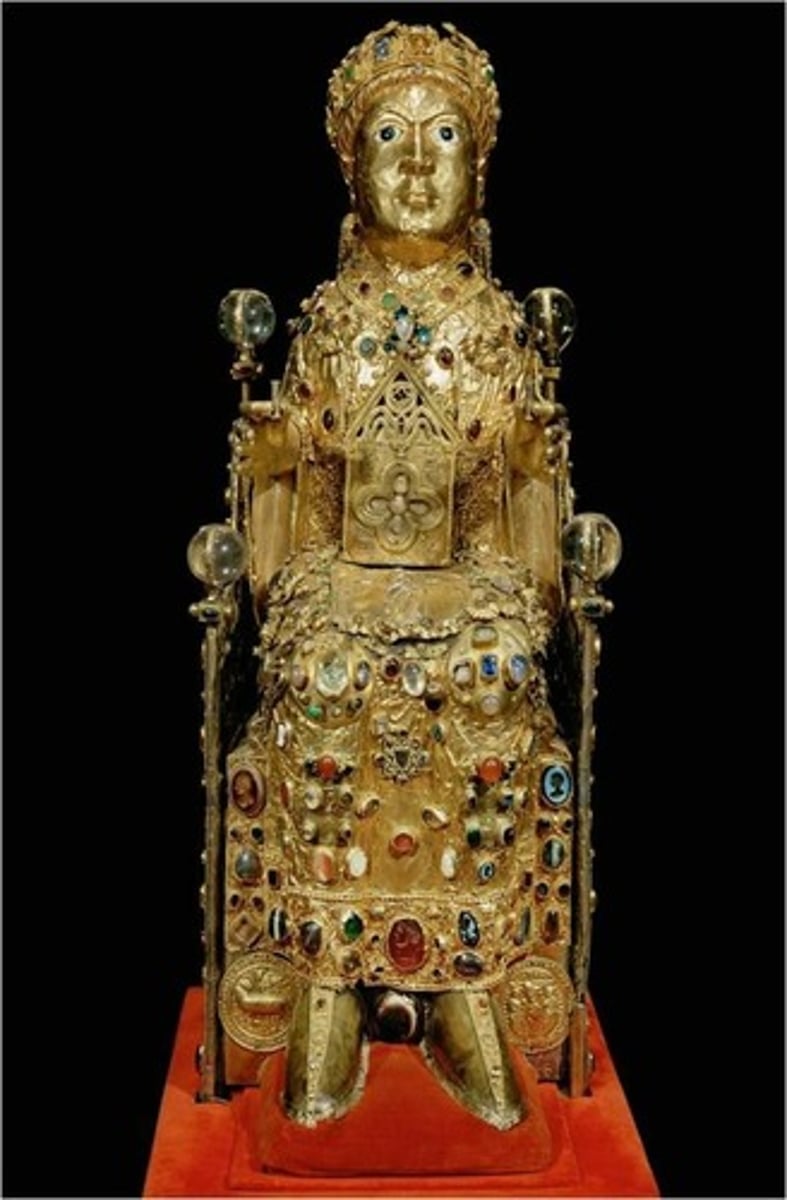
reliquary
A container where religious relics are stored or displayed (especially relics of saints)
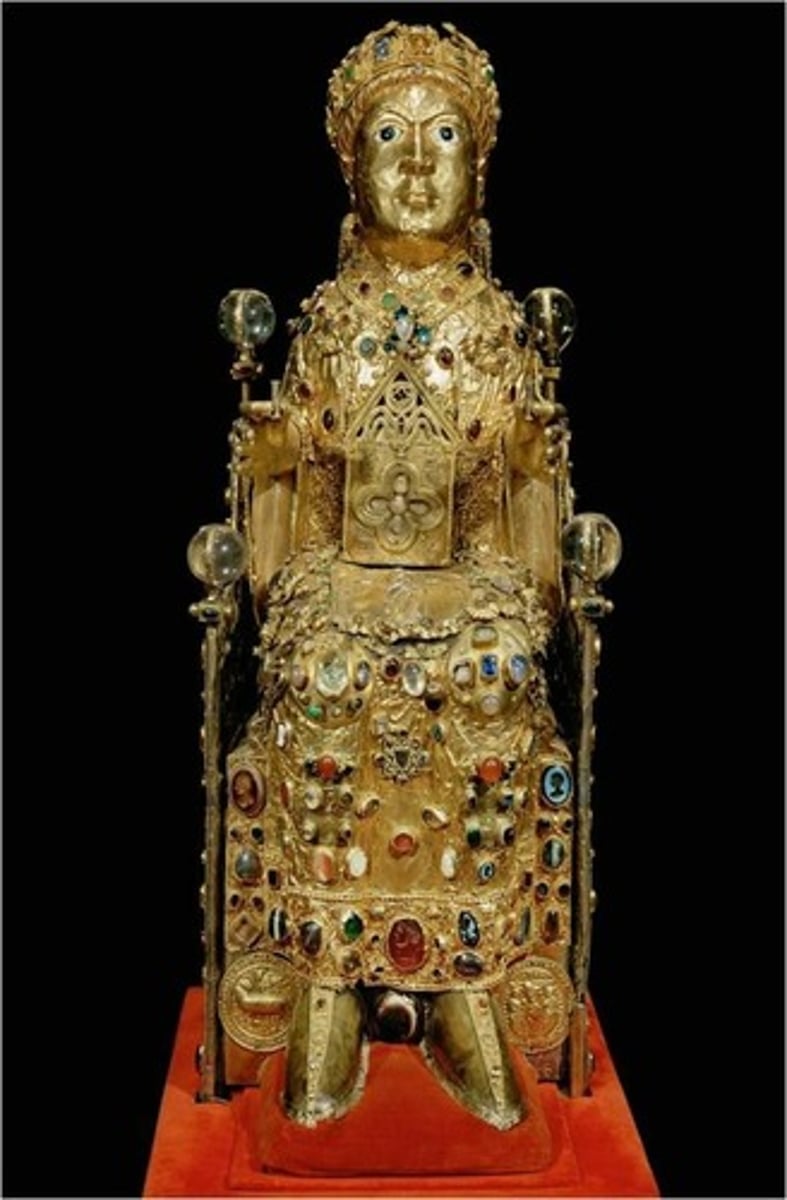
rose window
a circular window with stained glass and stone tracery used on the facades and the ends of the transepts in Gothic cathedrals
Transept
is a transverse section, of any building, which lies across the main body of the building
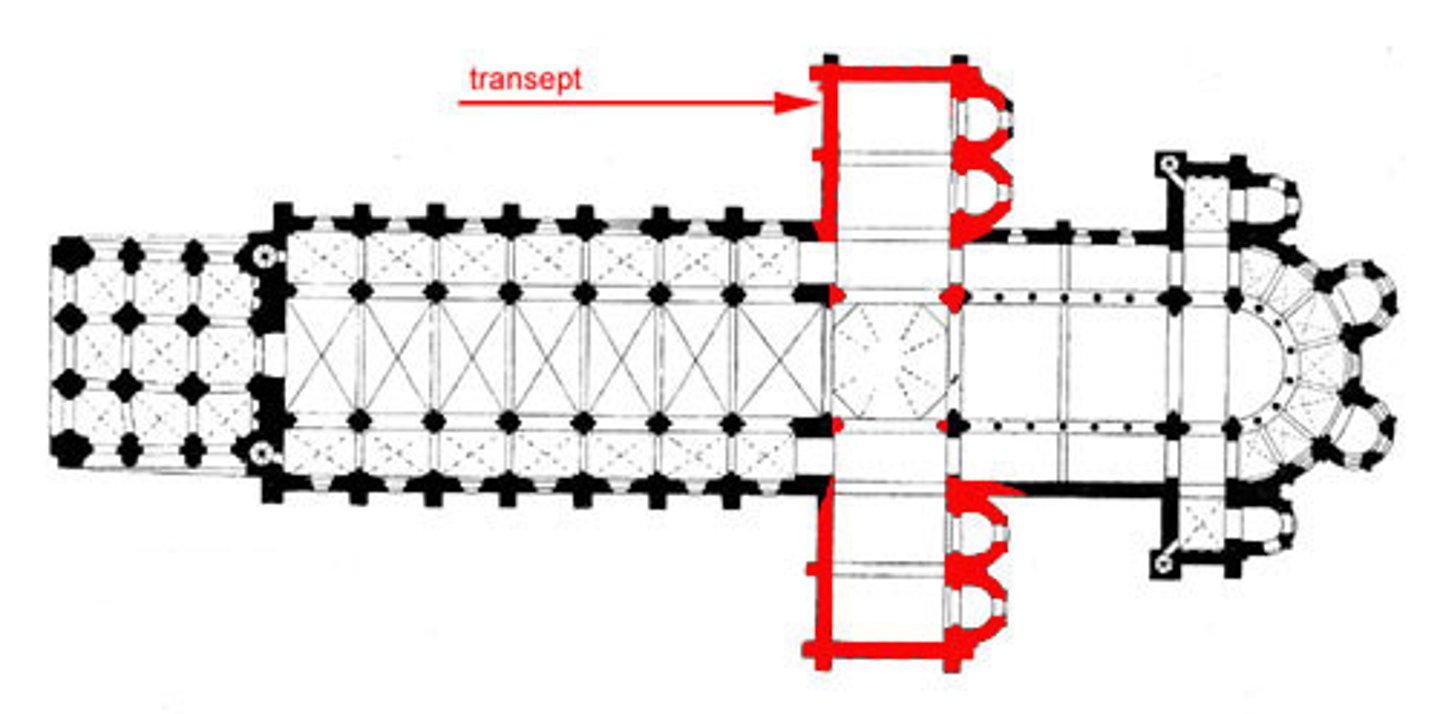
transverse arch
an arch that spans an interior space connecting opposite walls by crossing from side to side
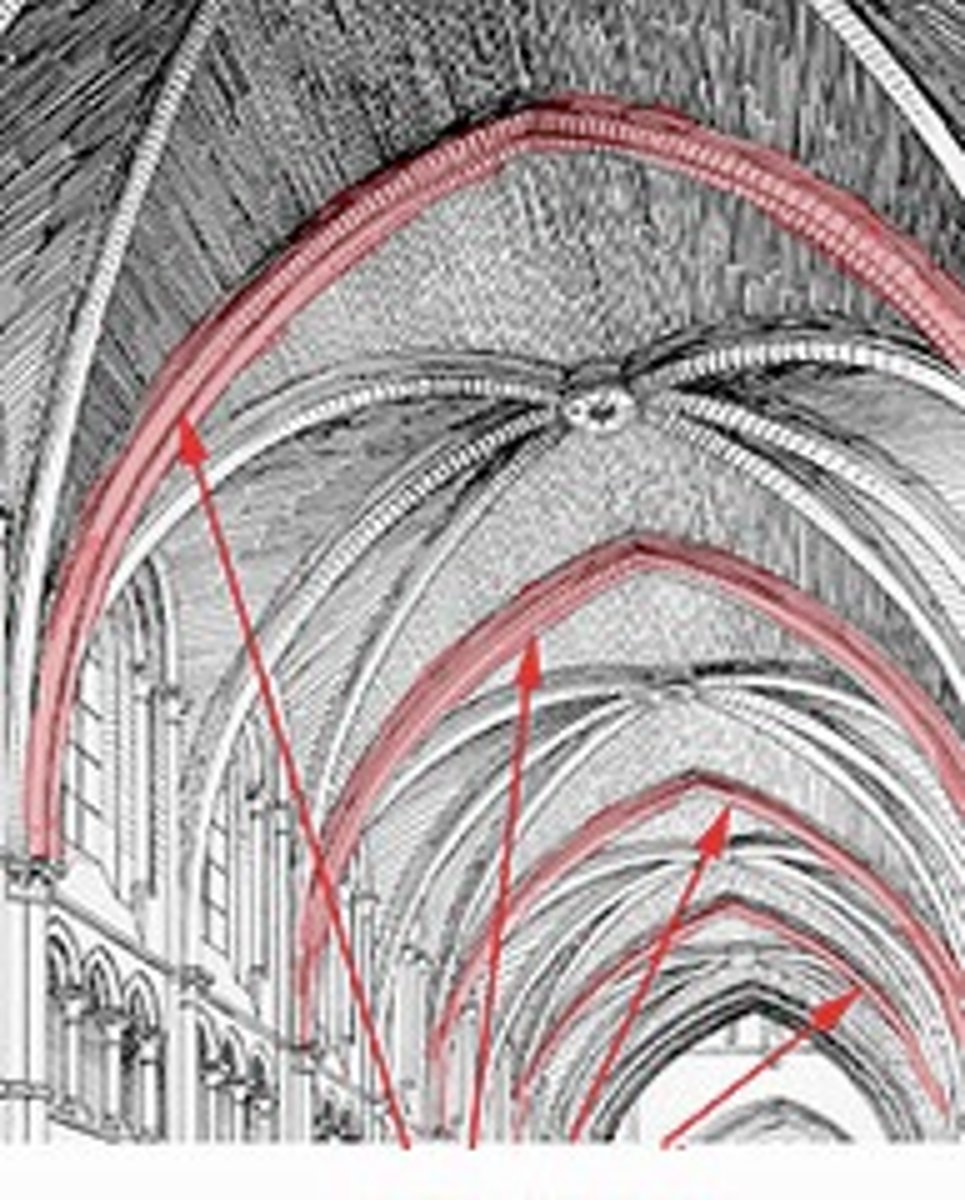
triforium
a gallery or arcade above the arches of the nave, choir, and transepts of a church.
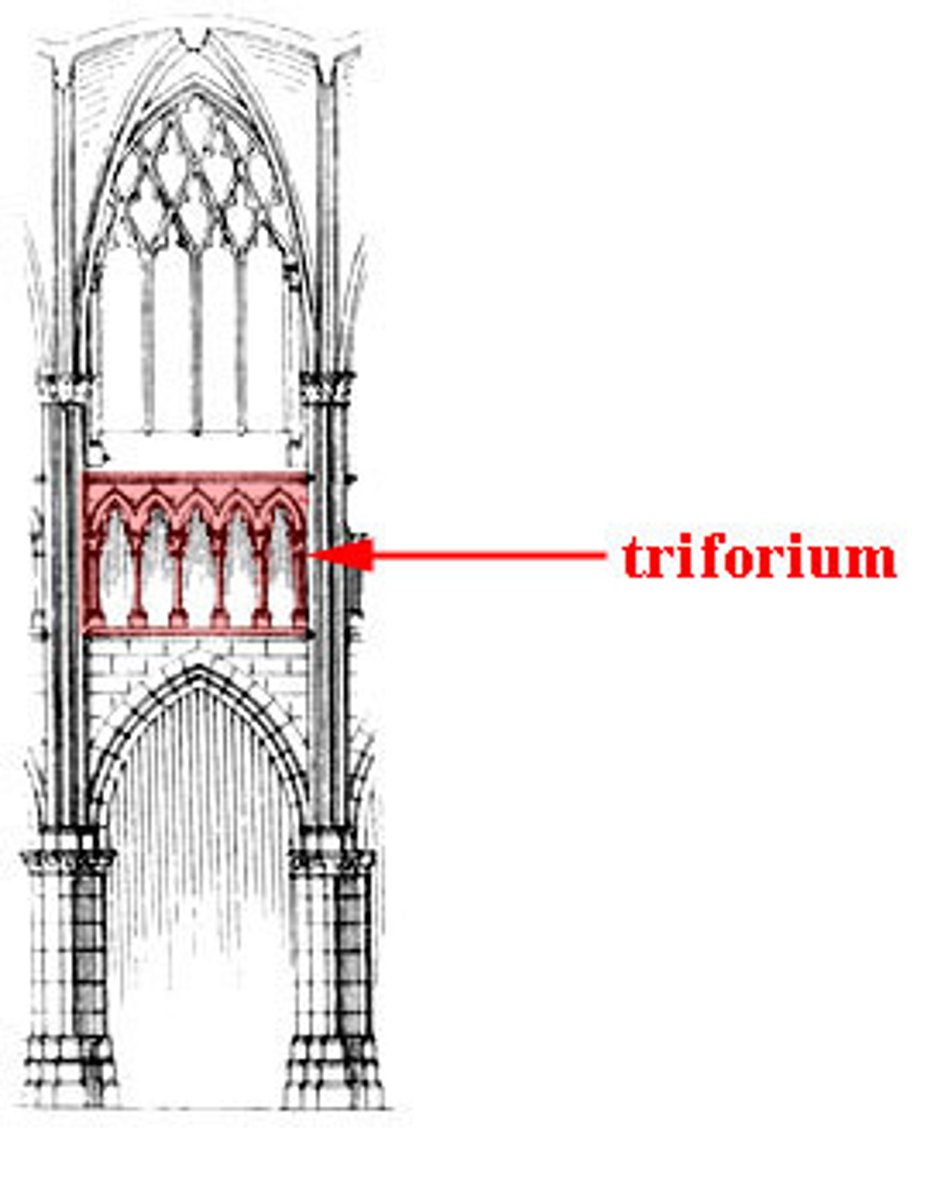
Clerestory
the upper part of the nave, choir, and transepts of a large church, containing a series of windows. It is clear of the roofs of the aisles and admits light to the central parts of the building.
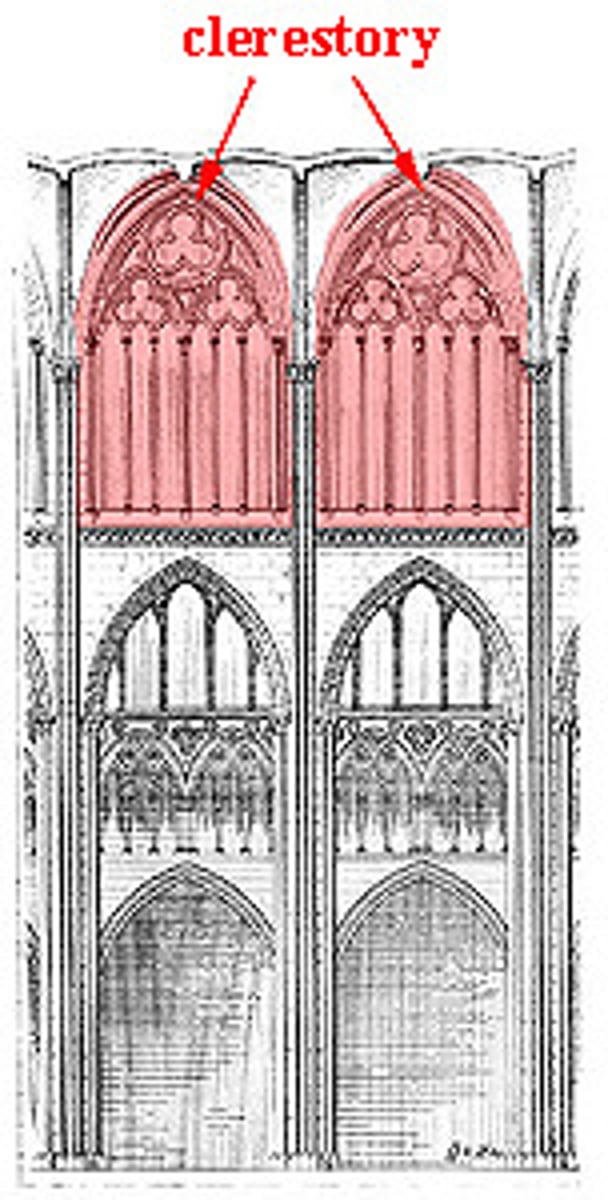
trumeau
In church architecture, the pillar or center post supporting the lintel in the middle of the doorway.
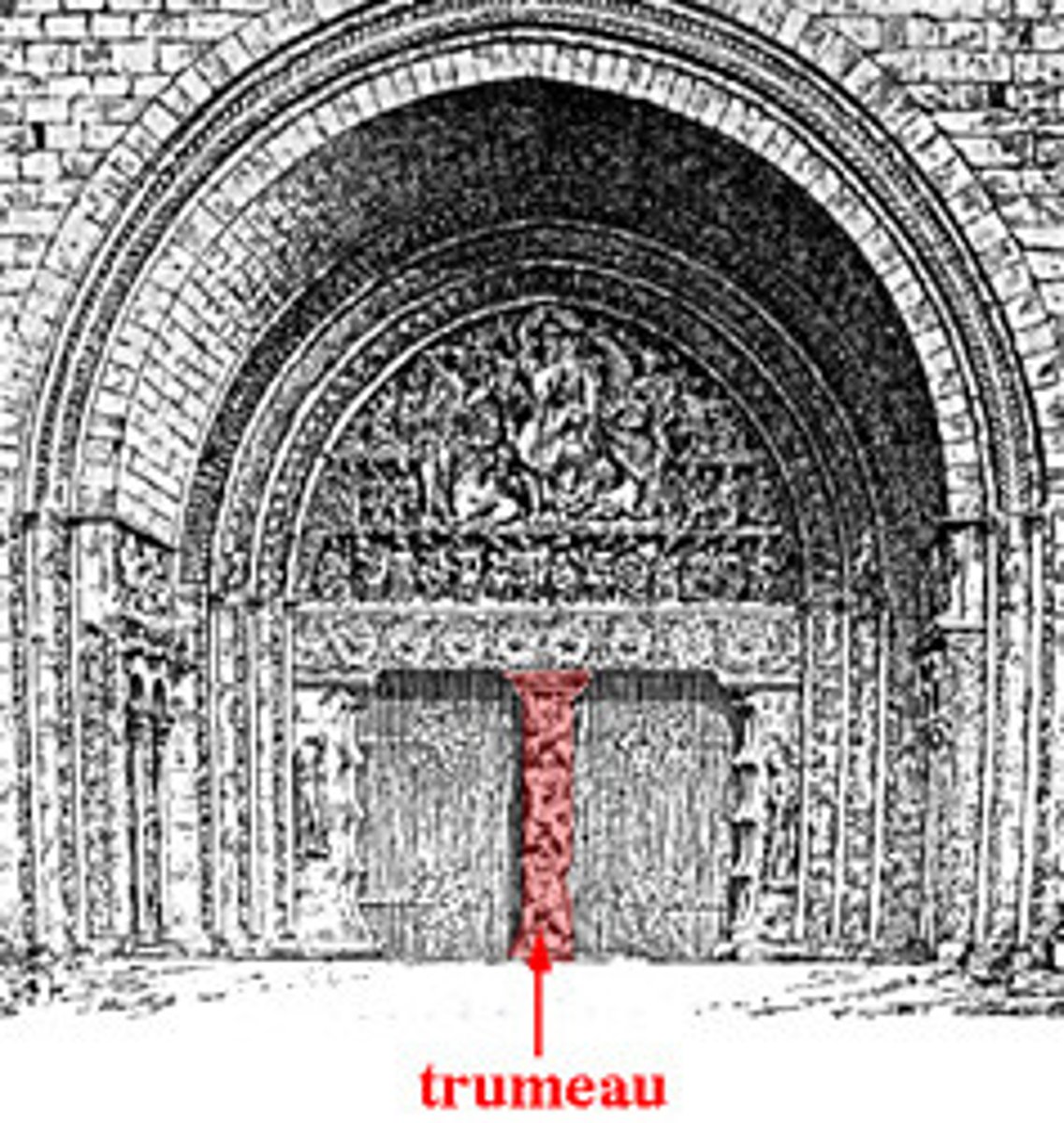
tympanum
the space enclosed by a lintel and an arch over a doorway
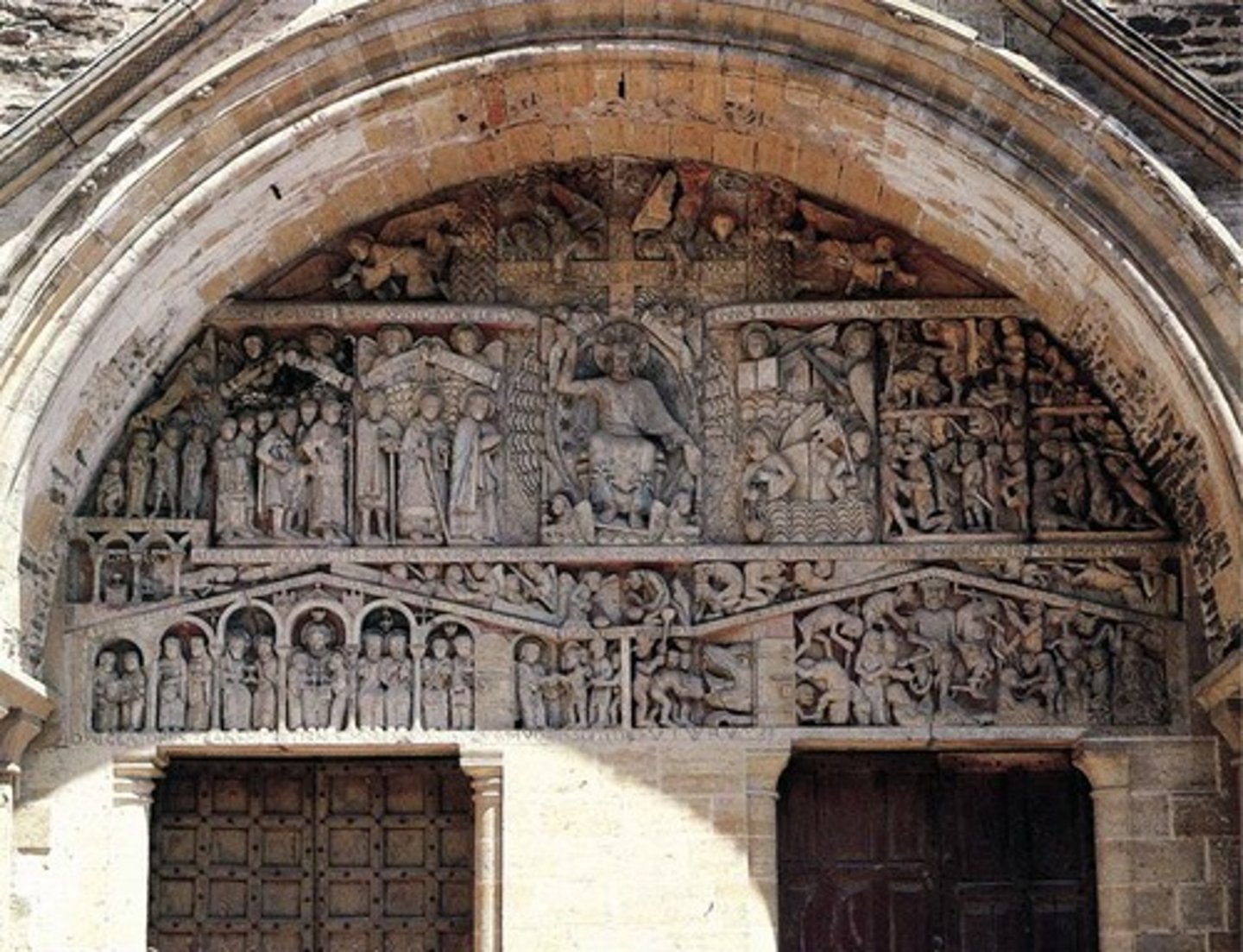
vault
a curved ceiling made of arches
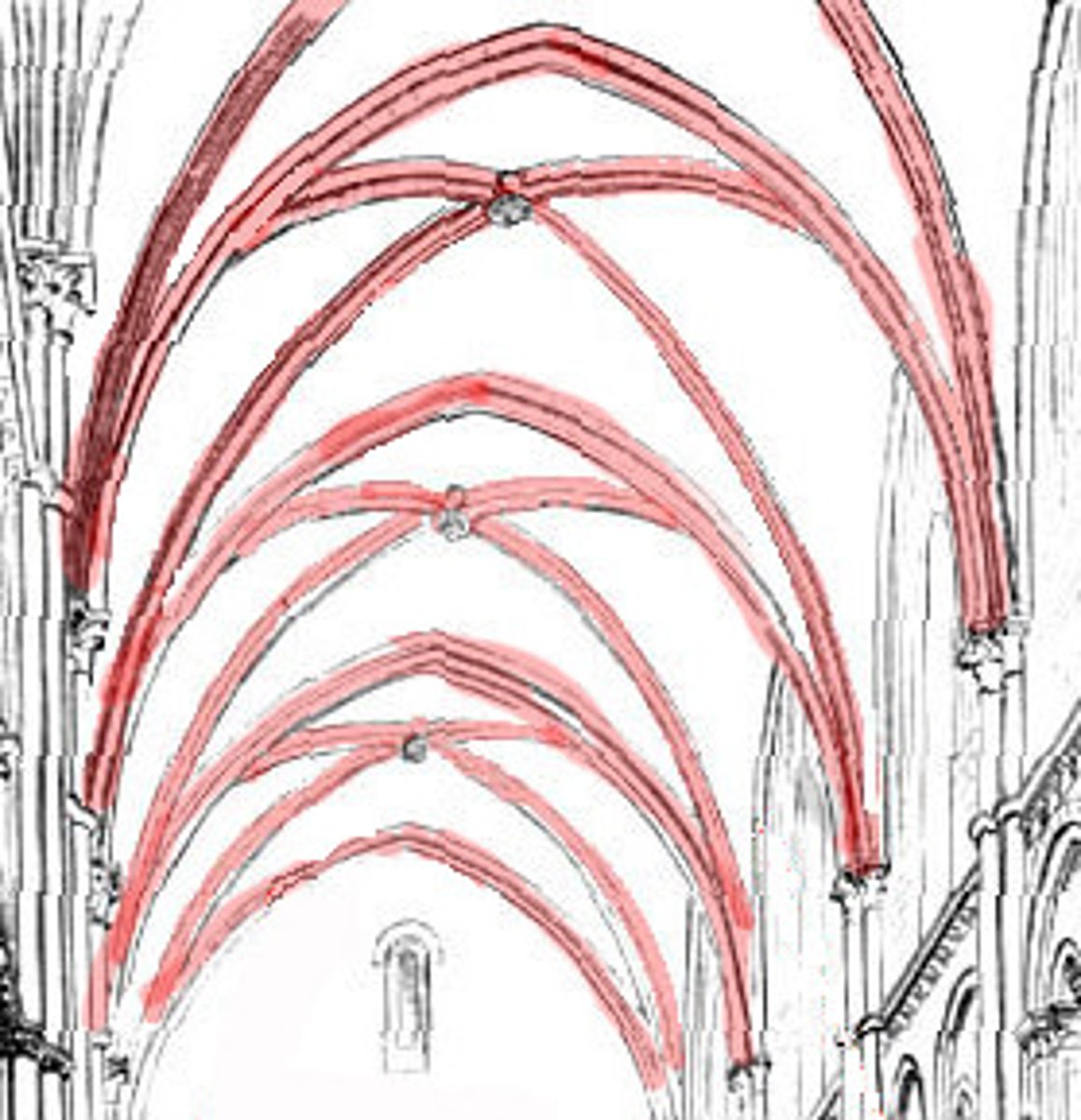
Voussoirs
a wedge-shaped or tapered stone used to construct an arch.
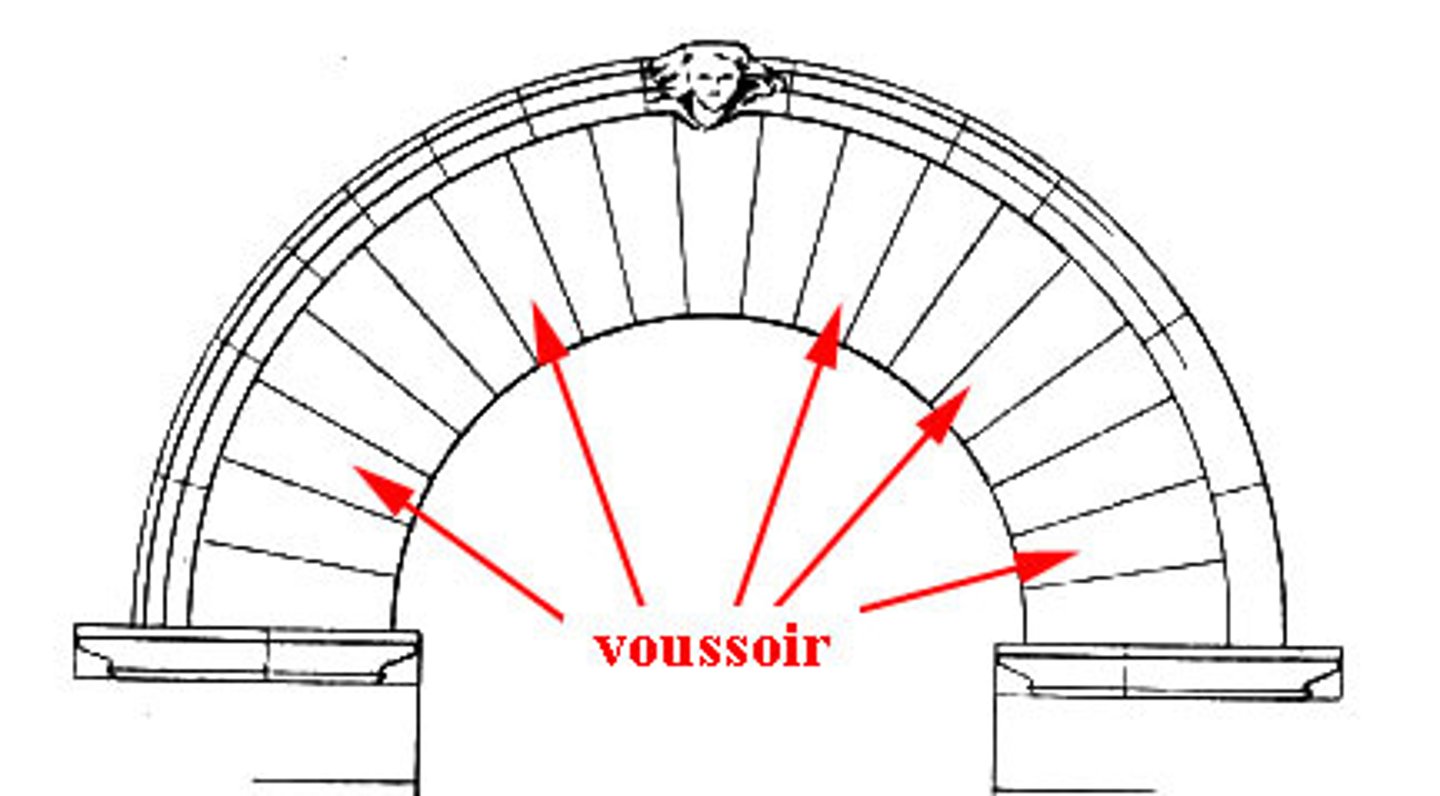
Bishop Odo
Half Brother of William the Conqueror, many believe him to be the man who commissioned the Bayeux Tapestry in recognition and celebration of William's victory over Harold Godwinson.
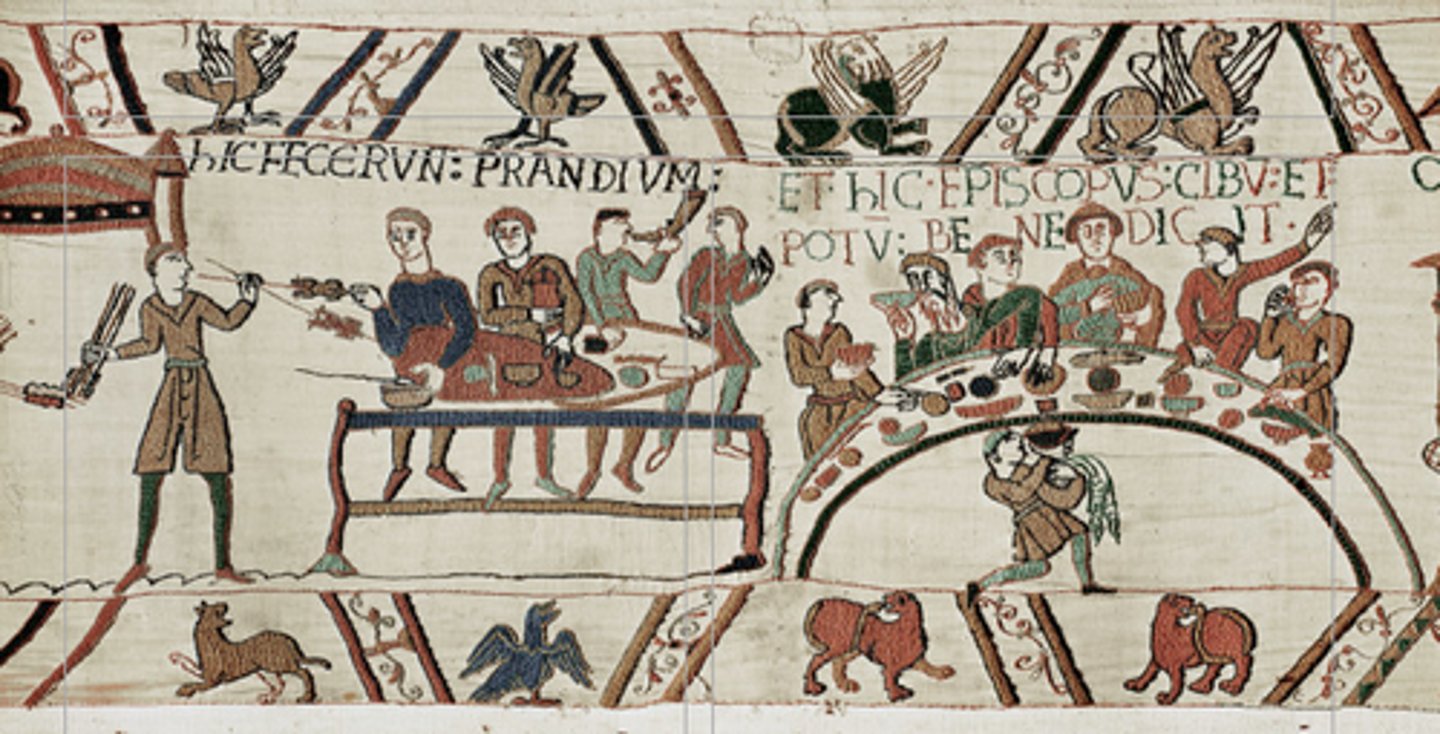
Sainte- Foy (Saint Faith)
Early Christian martyr who was killed for her religious beliefs.
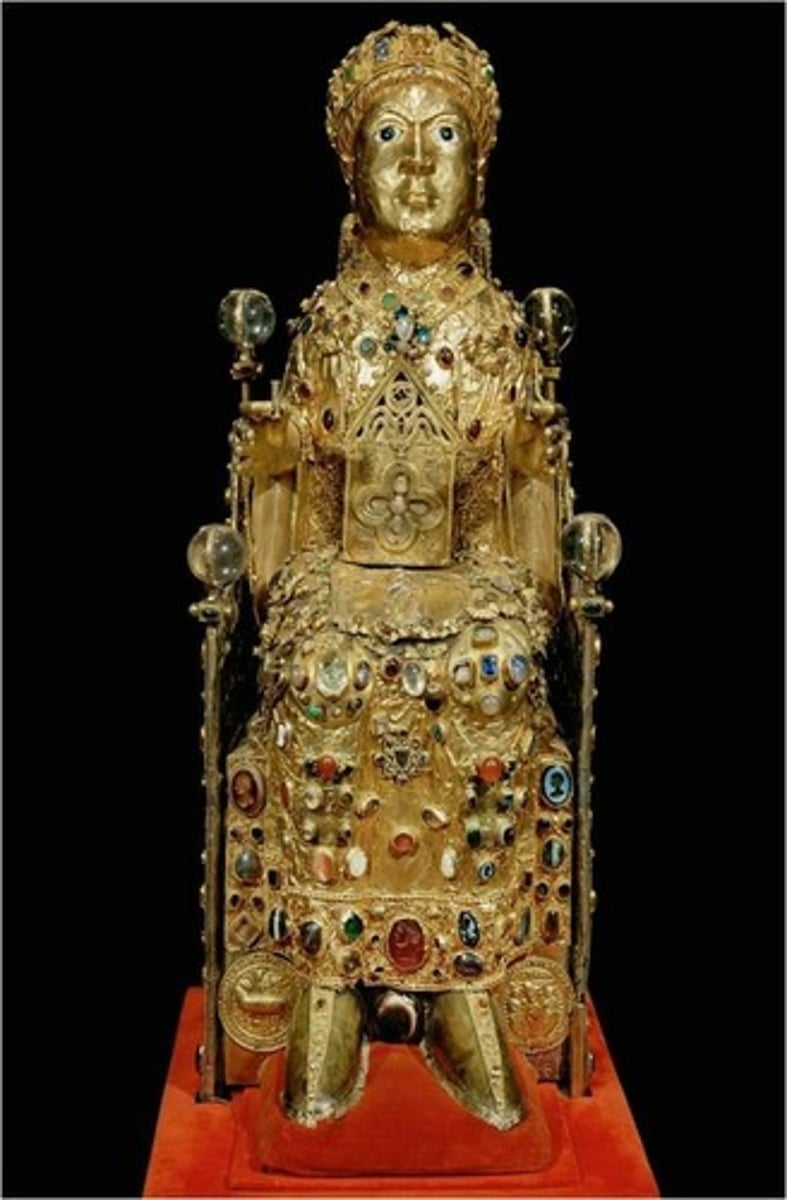
William the Conqueror
Duke of Normandy who invaded England in 1066 and claimed the English crown
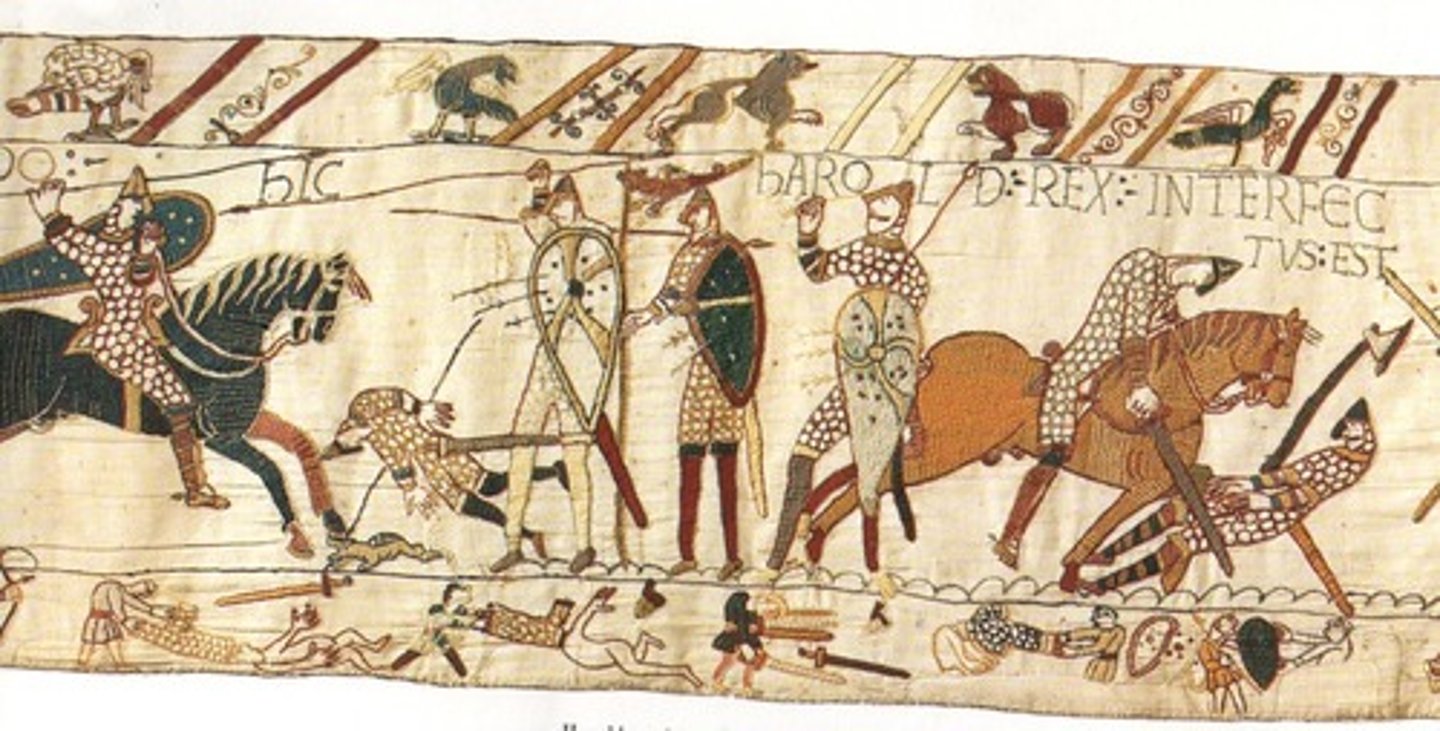
Abbot Sugar
influential first patron of Gothic architecture; architect of St. Denis; emerged/'created' the Gothic style
Archivolts (Romanesque)
a band of molding, resembling an architrave, around the lower curve of an arch.
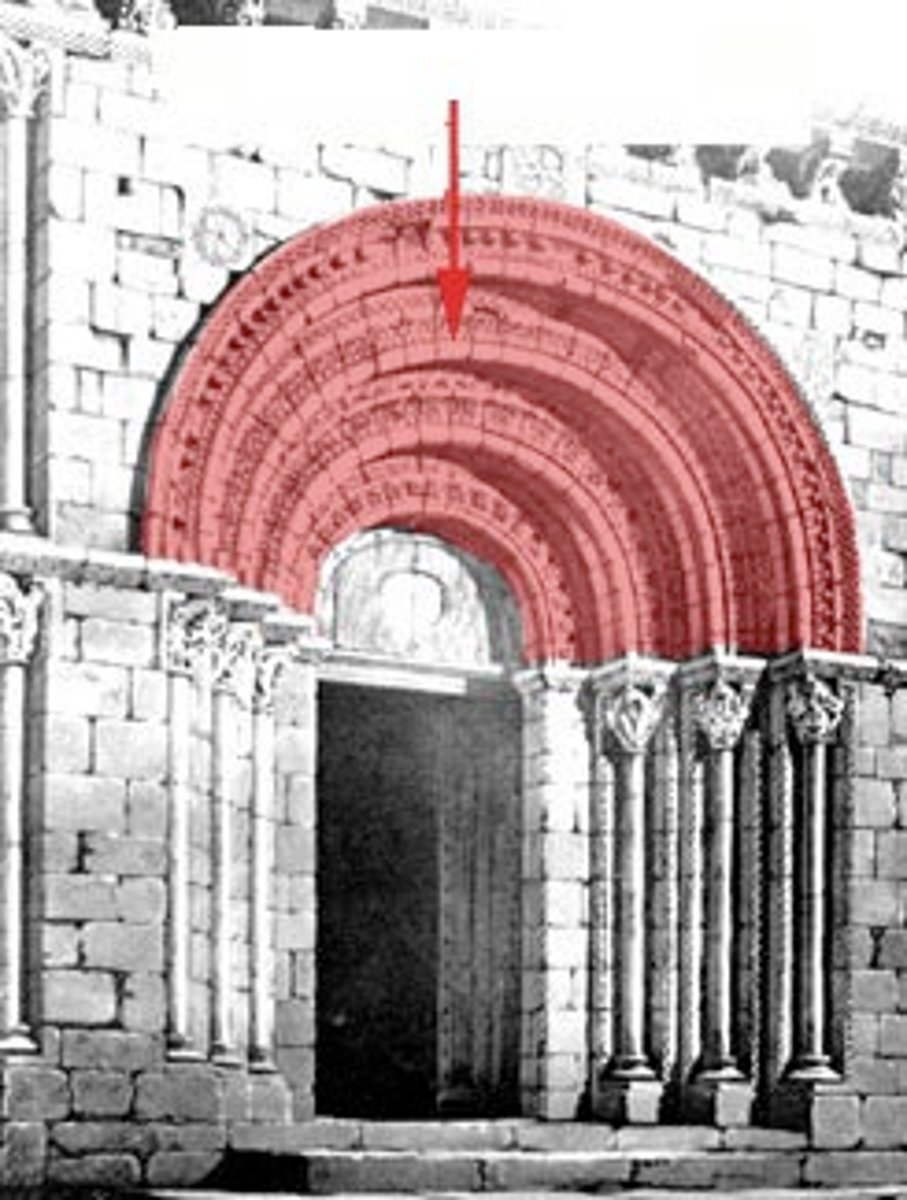
Christus Triumphans
Latin for triumphant Christ; a cross with a representation of a living Christ, eyes open and triumphant over death
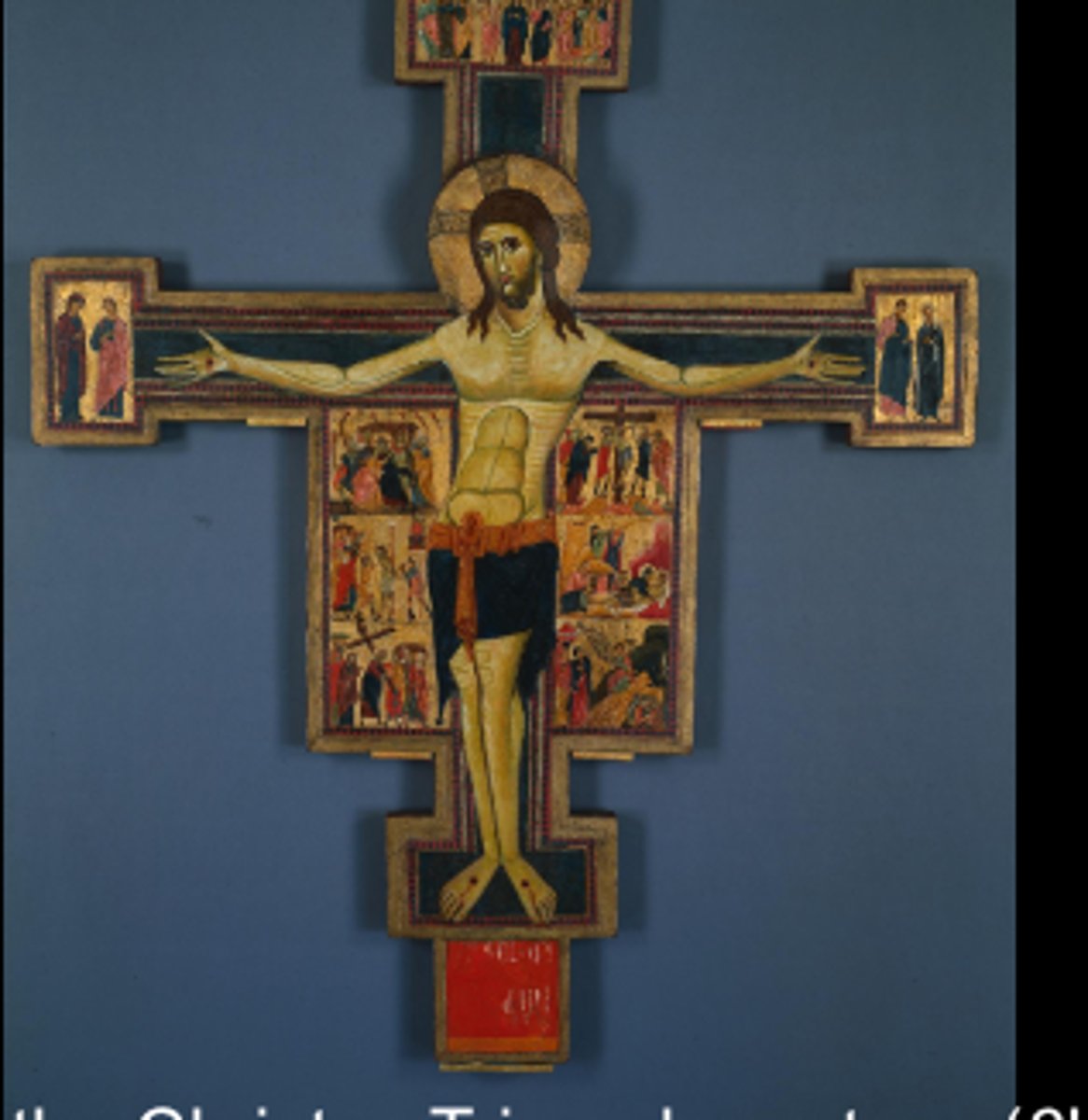
Christus Patiens
Latin for "suffering Christ." An image of Christ depicted dead on the cross.
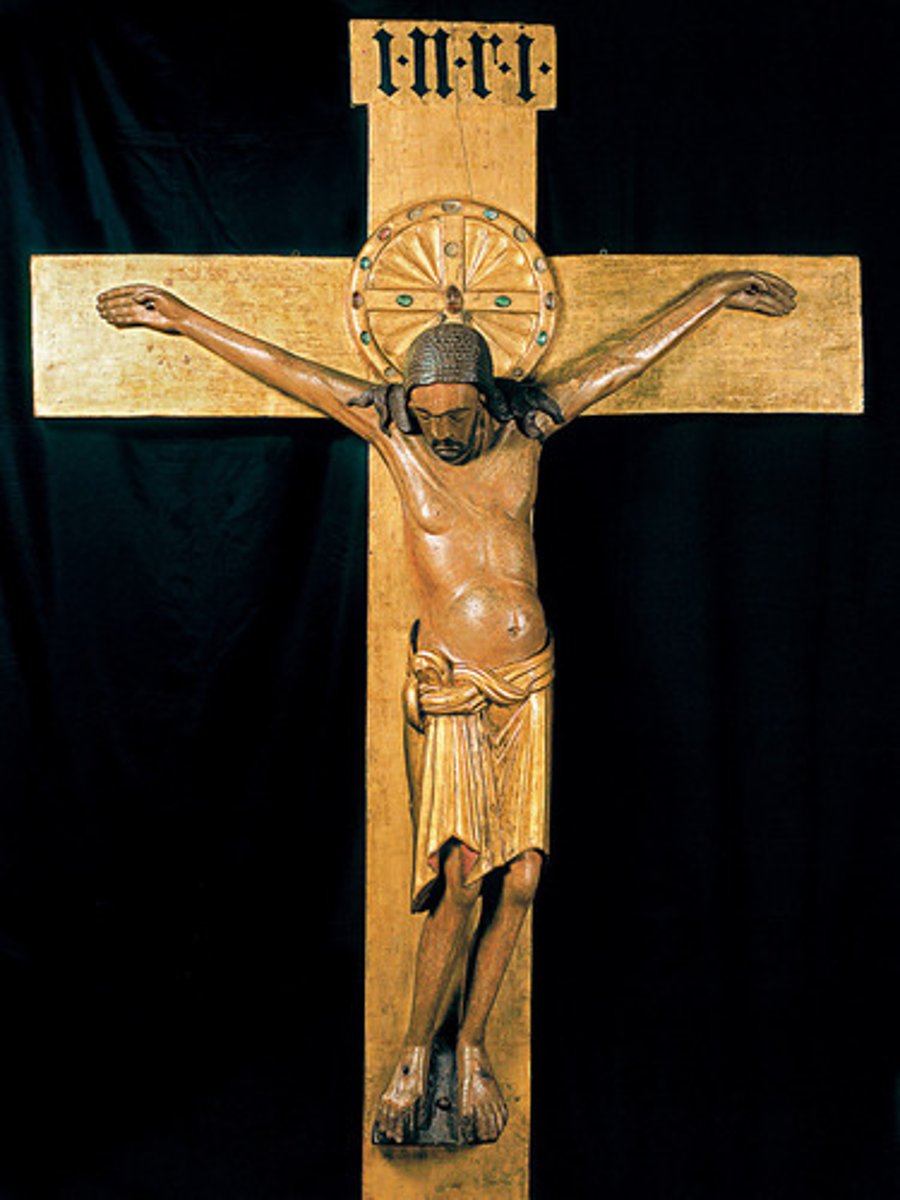
Flying Buttress (Gothic)
arch built onto the exterior of a building that transfers the thrust of the roof vaults at important stress points through the wall to a detached buttress pier
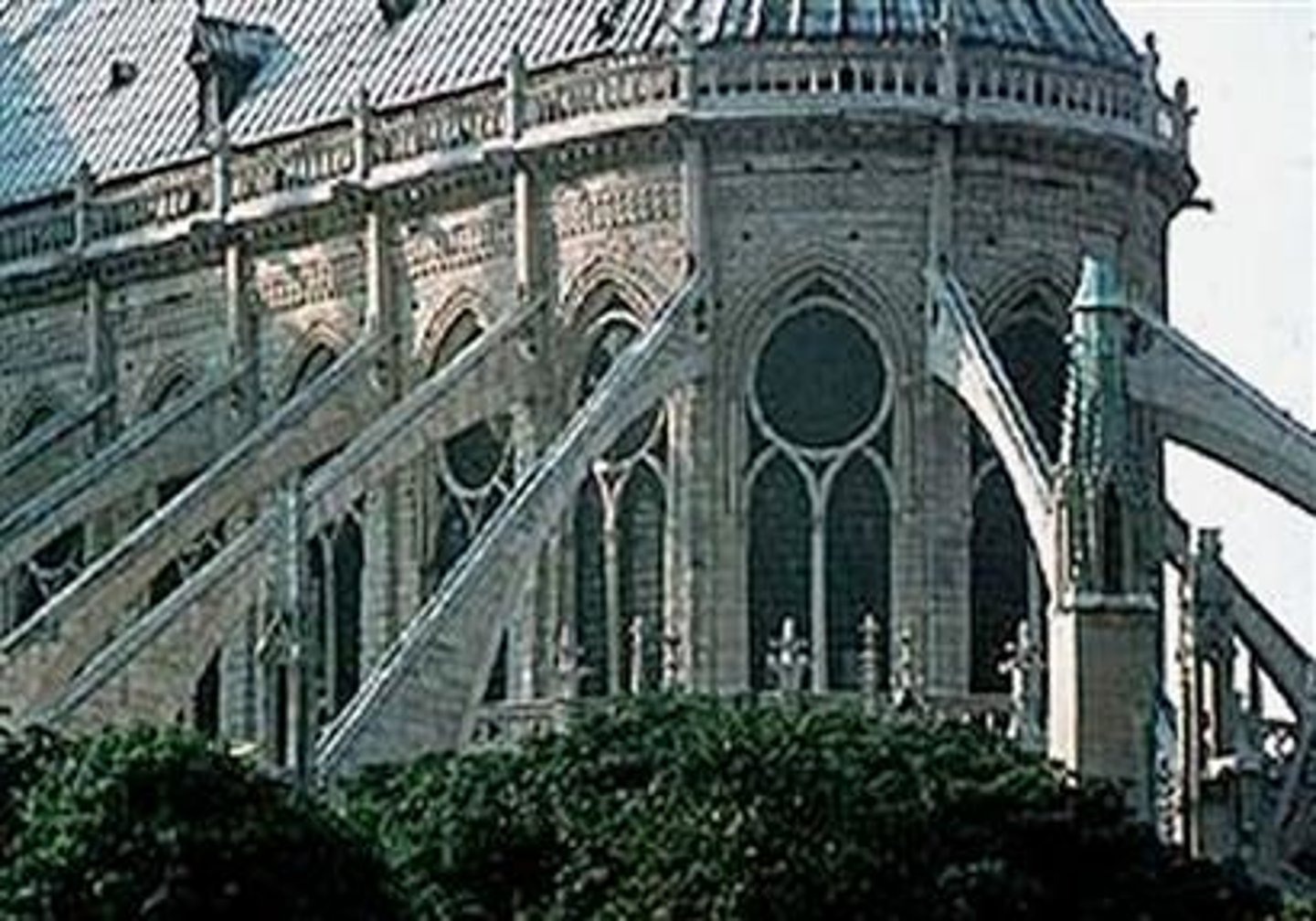
gargoyle
waterspout carved in grotesque figures on a building
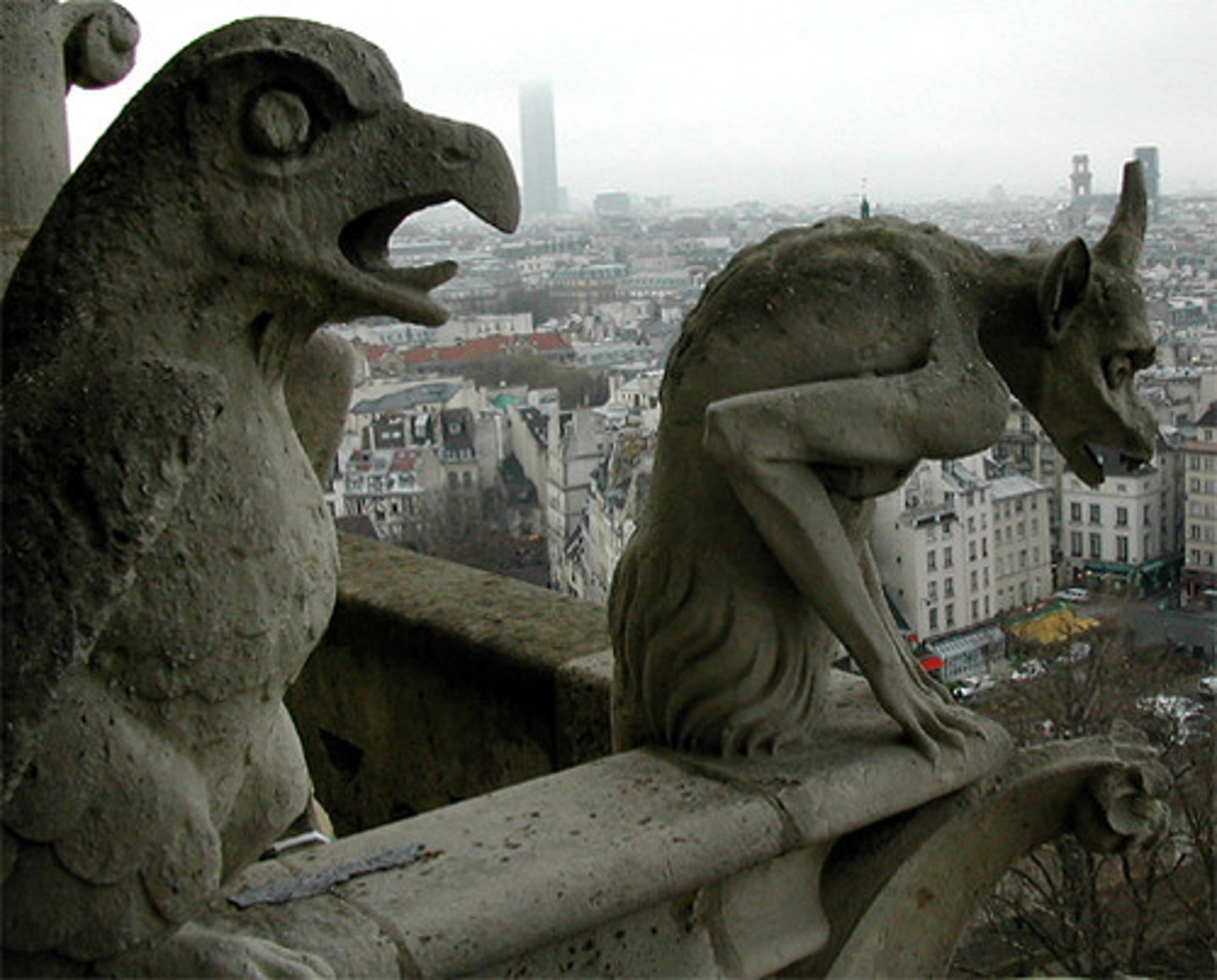
jamb figures
these are figures carved on the jambs (vertical support structure found on both sides of an opening) of a building. Chartres Cathedral
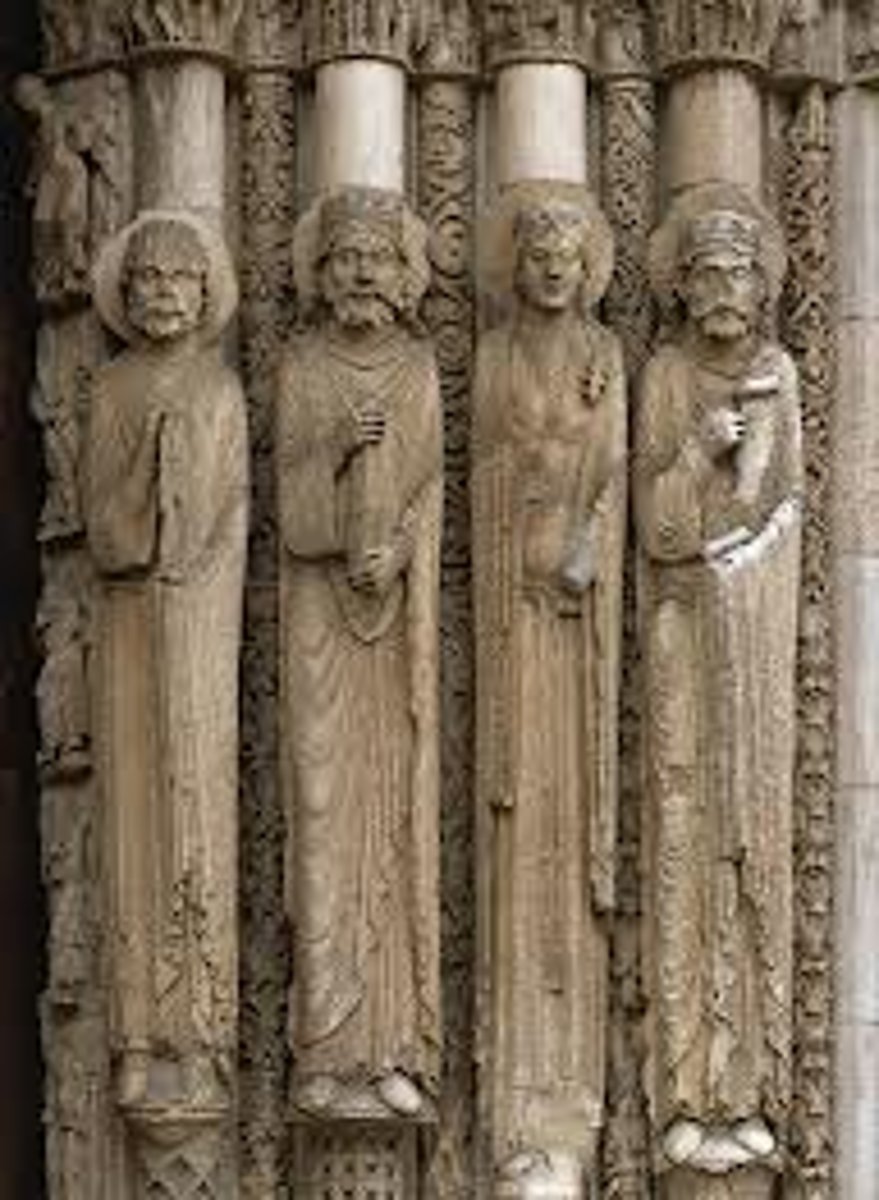
lancet window
A tall narrow window crowned by a sharply pointed arch, typically found in Gothic architecture.
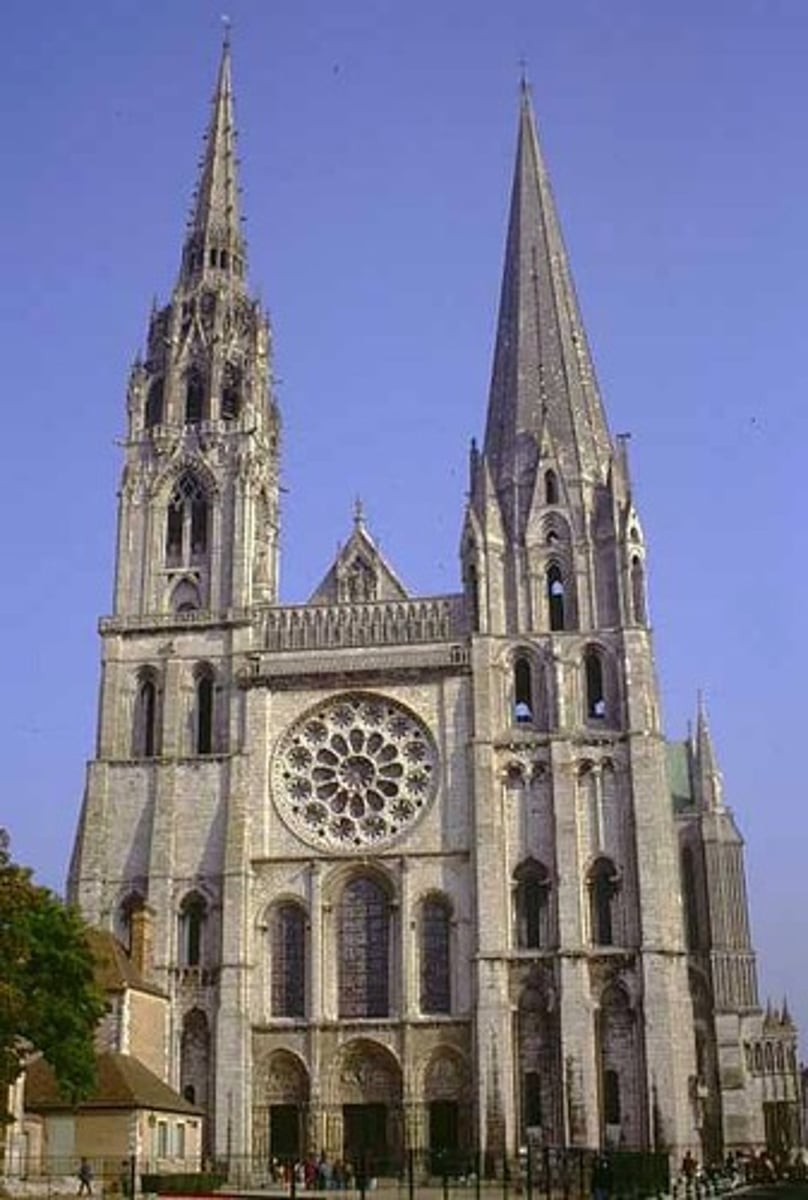
pier
a vertical support that holds up an arch or a vault

stained glass
In Gothic architecture, the colored glass used for windows
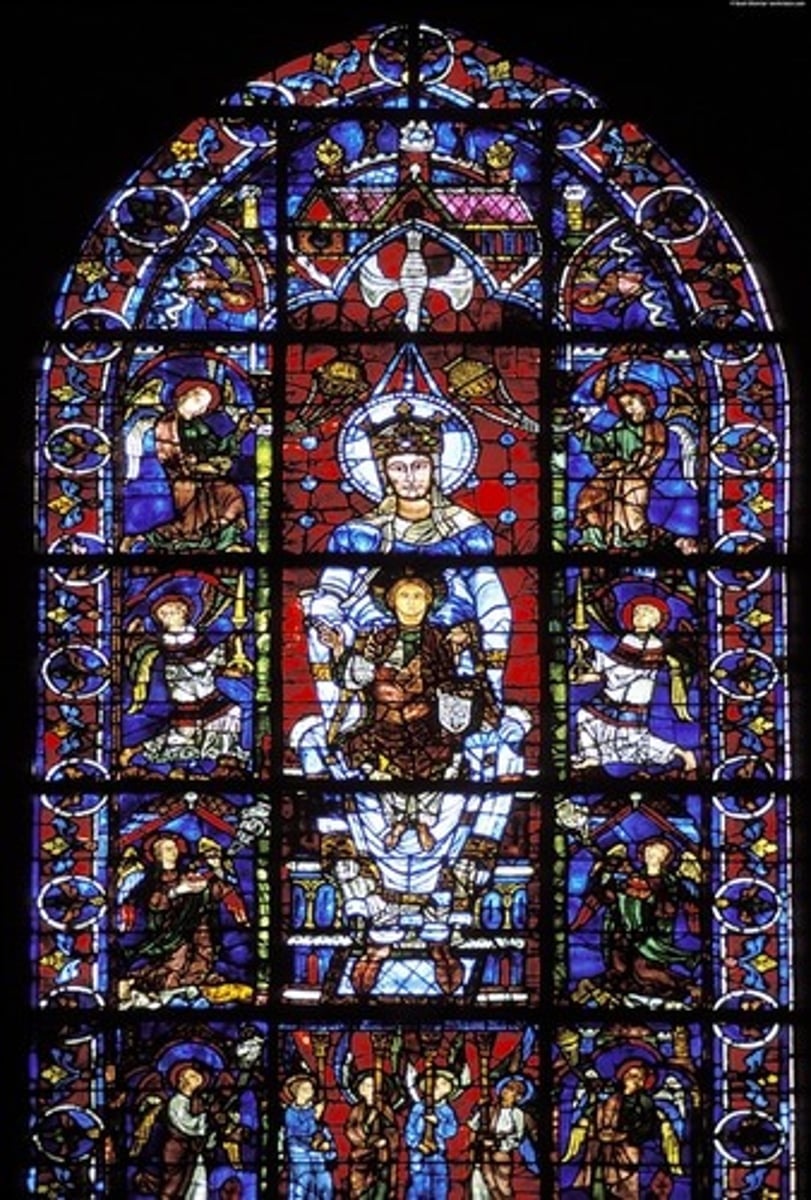
Pieta
A painted or sculpted representation of the Virgin Mary mourning over the body of the dead Christ.
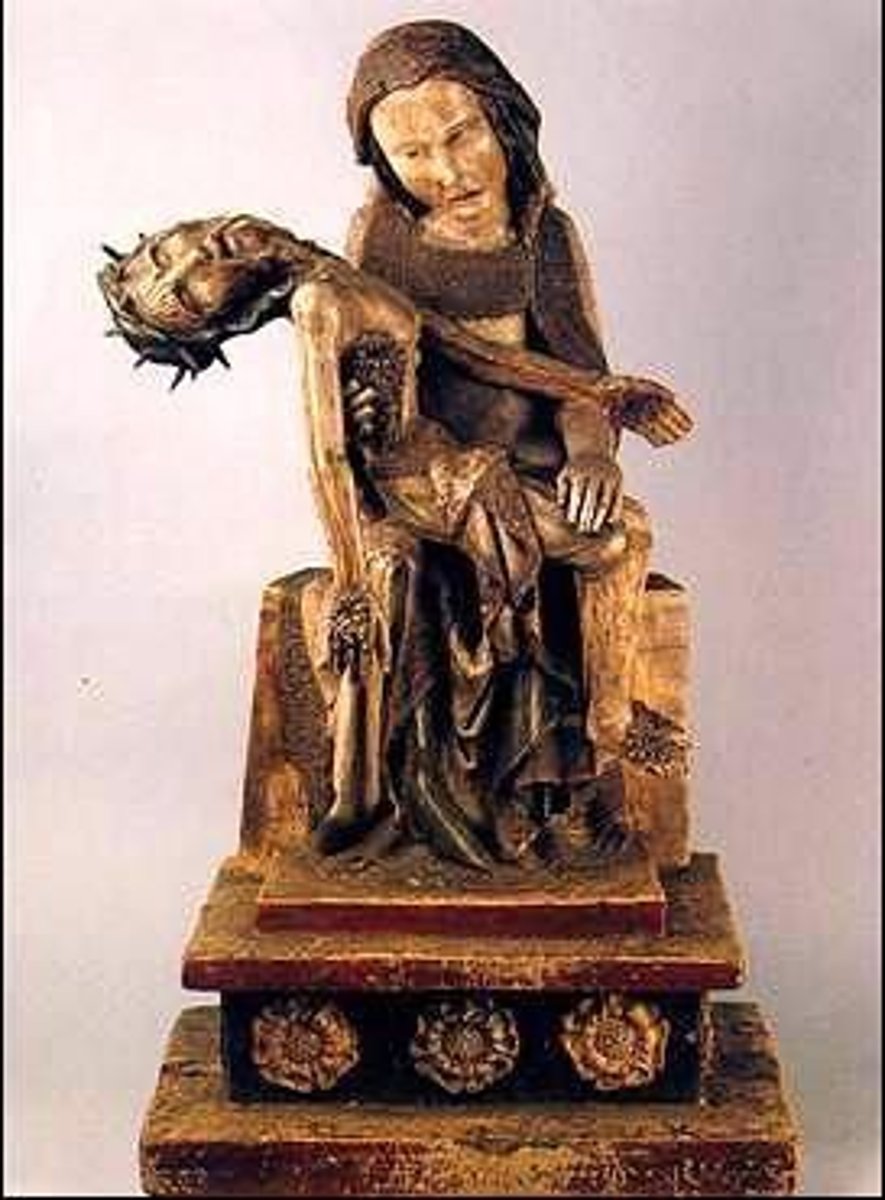
Giorgio Vasari
Italian painter and art historian (1511-1574); wrote The Lives of the Artists. Massive patronage of the arts came from this and was lead by families like the Medici's and also the churches, who saw art as a means of glorifying God.
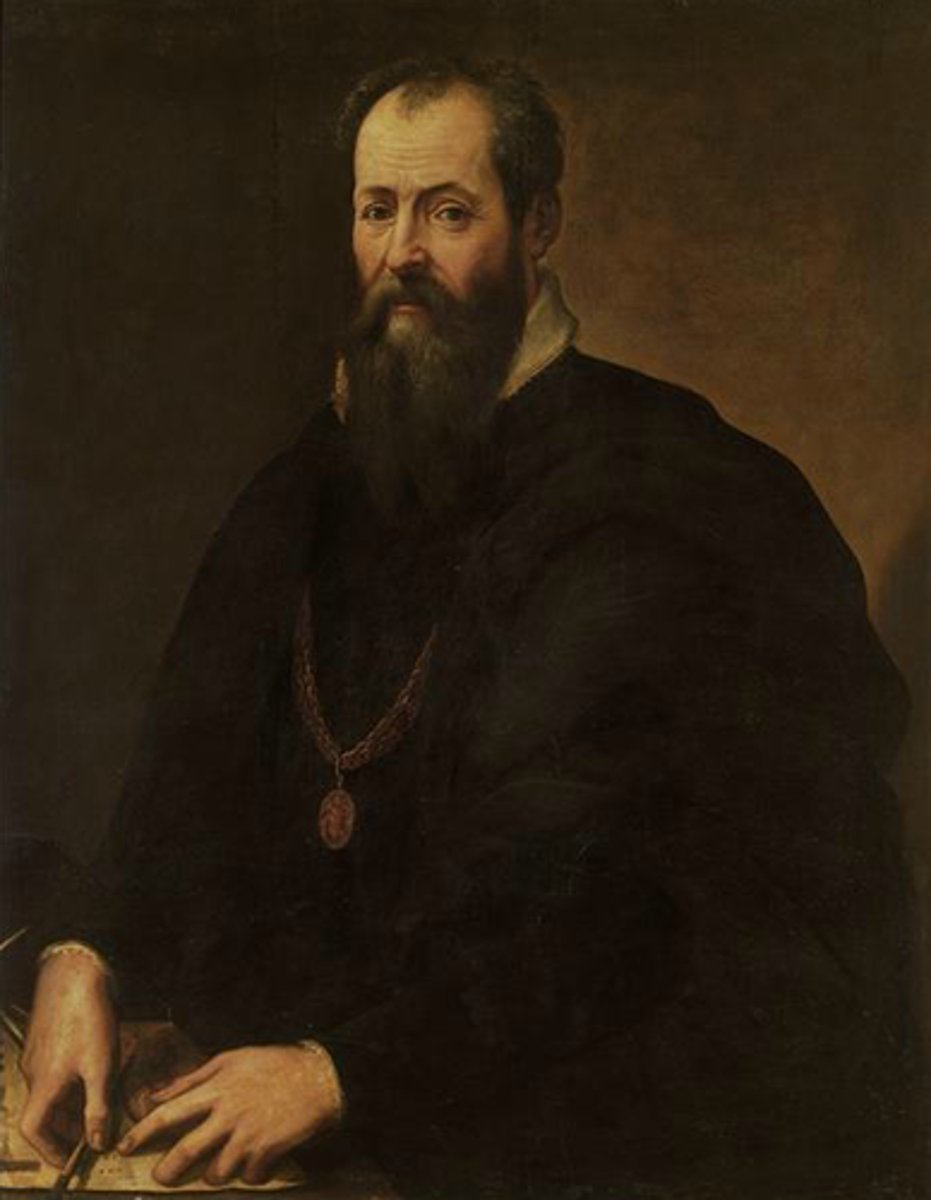
ribbed vault
A vault that features a framework of ribs or arches under the intersections of the vaulted sections
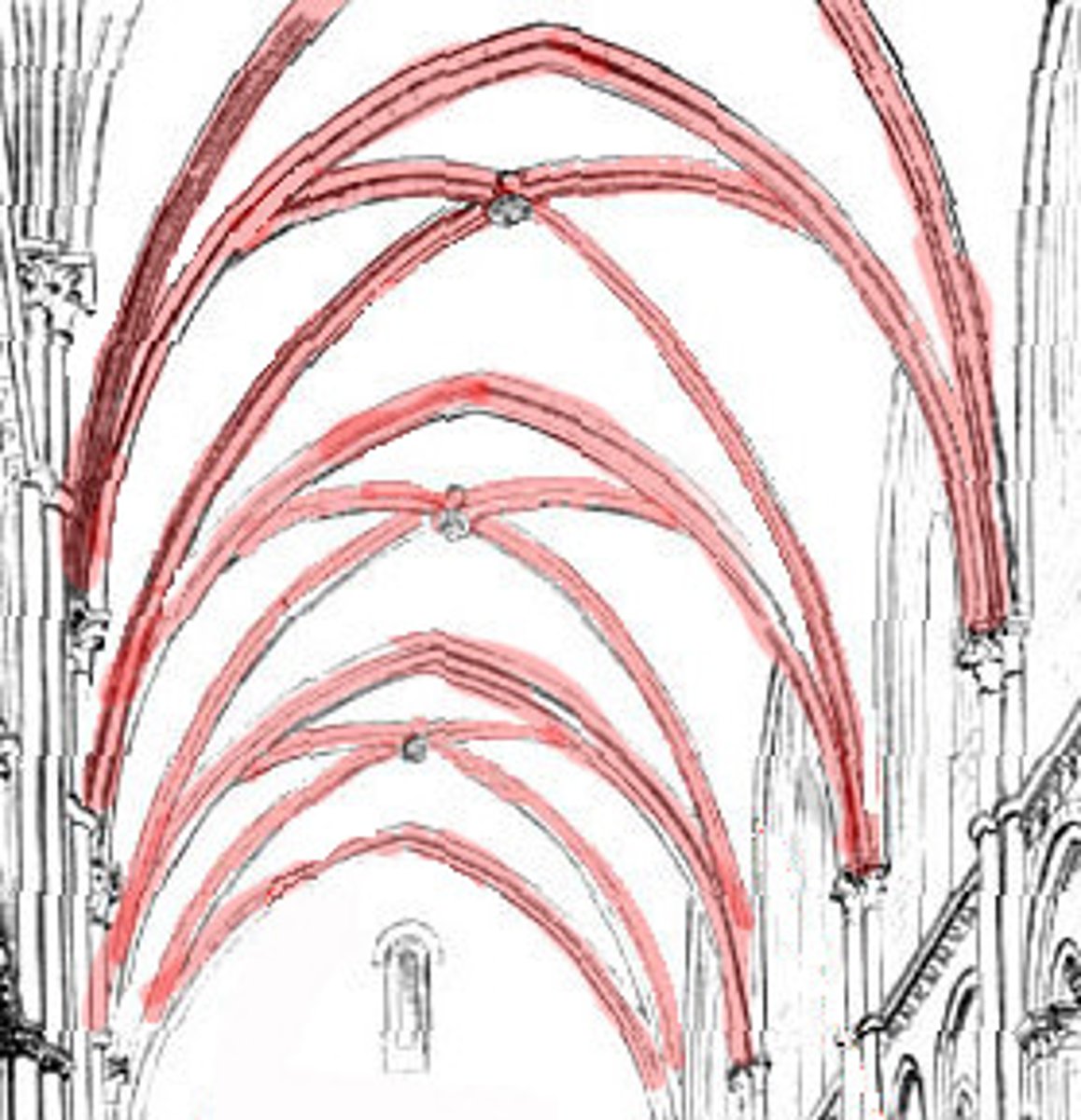
Church of Sainte-Foy
Artist: Unknown
Period: Romanesque Europe
Dates: Church 1050-1130 C.E., Reliquary of Sainte Foy 9th century w/later additions
Culture: Conques, France
Material: Stone (architecture); stone and paint (tympanum); gold, silver, gemstones, and enamel over wood (reliquary)
Bayeux Tapestry
Artist: Unknown
Period: Romanesque Europe
Dates: 1066-1080 C.E.
Culture: English or Norman
Material: Embroidery on linen
Chartres Cathedral
Artist:
Period: Gothic Europe
Dates: 1145-1155 C.E. orig. construction, 1194-1220 reconstructed
Culture: Chartres, France
Material: Limestone, stained glass
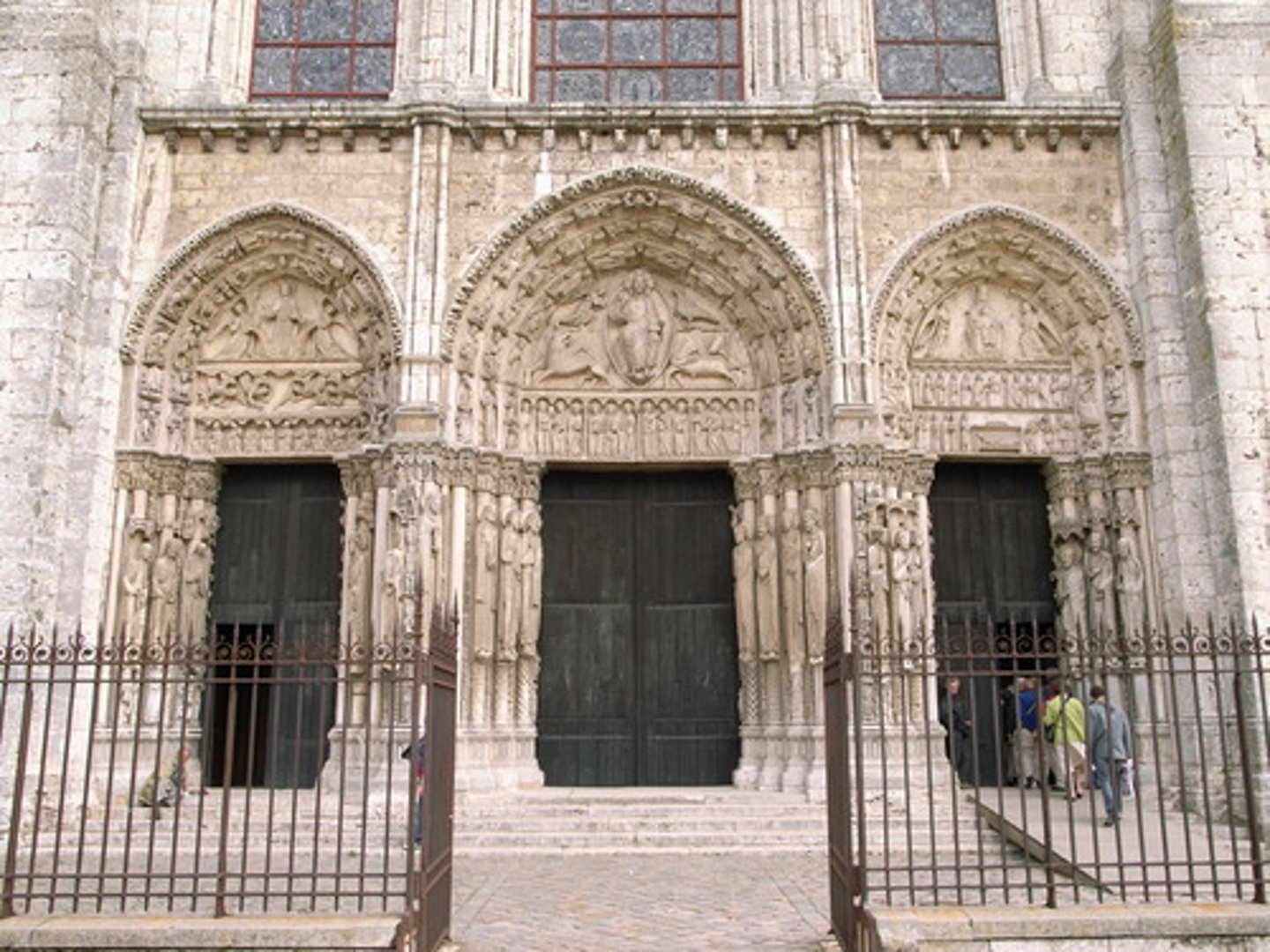
Dedication Page with Blanche of Castile and King Louis IX of France and Scenes from the Apocalypse, from a Bibles moralisée (moralized bible)
Artist:
Period: Gothic Europe
Dates: 1225-1245 C.E.
Culture:
Material: Illuminated manuscript (ink, tempera, gold leaf on vellum) (2 images, each from a separate manuscript)
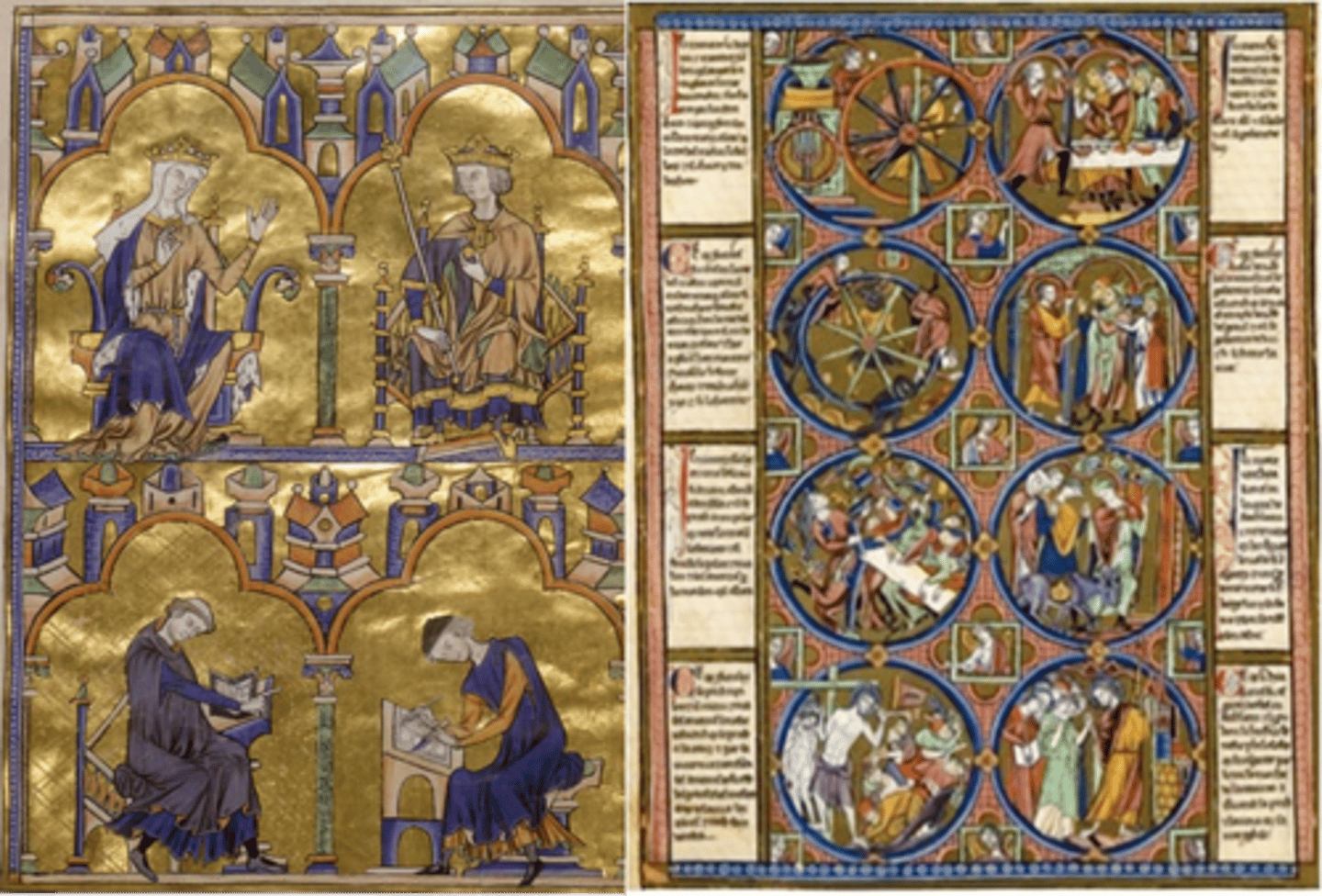
Röttgen Pietà
Artist:
Period: Late Medieval Europe
Dates: 1300-1325 C.E.
Culture: Middle Rhine, Germany
Material: Painted wood